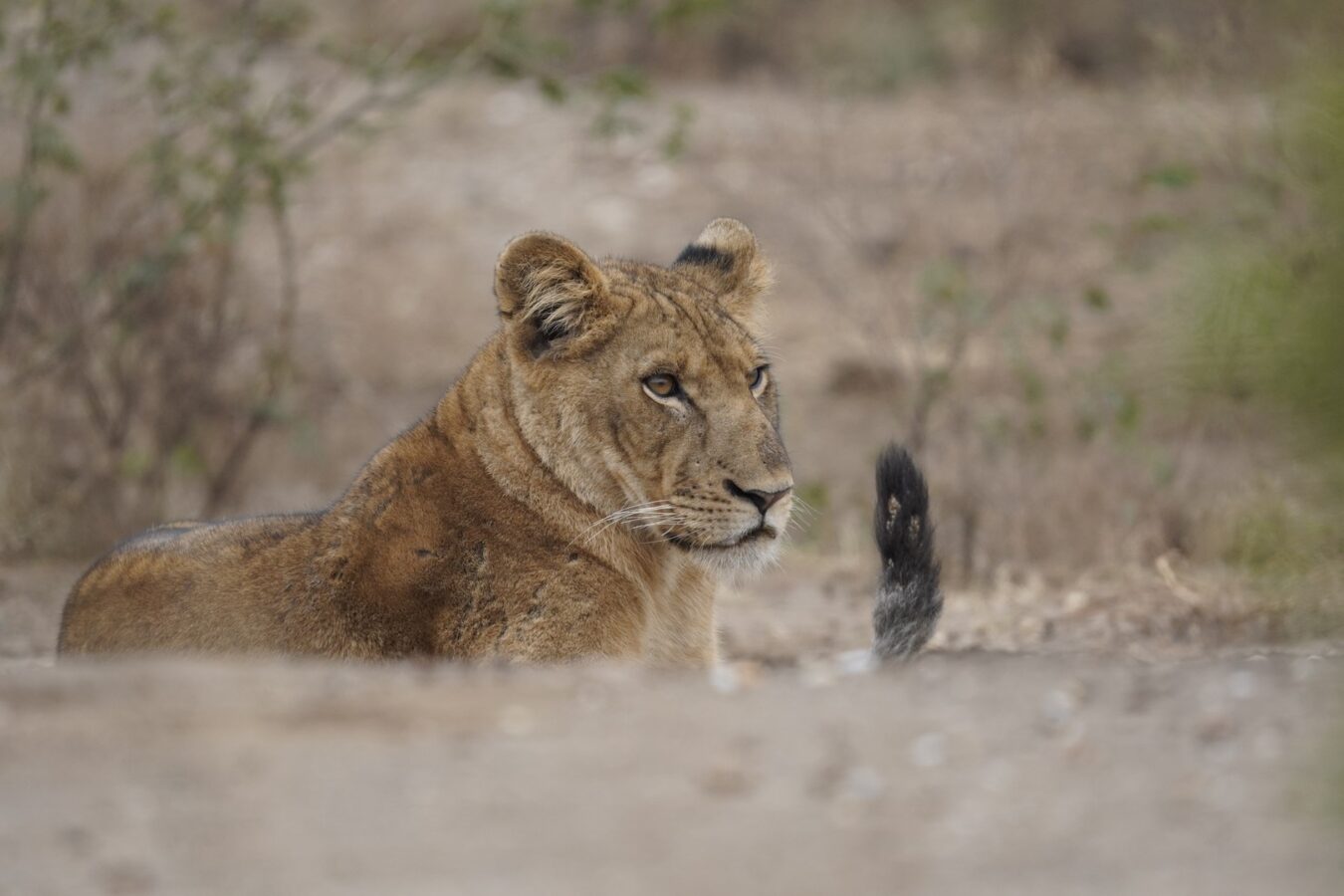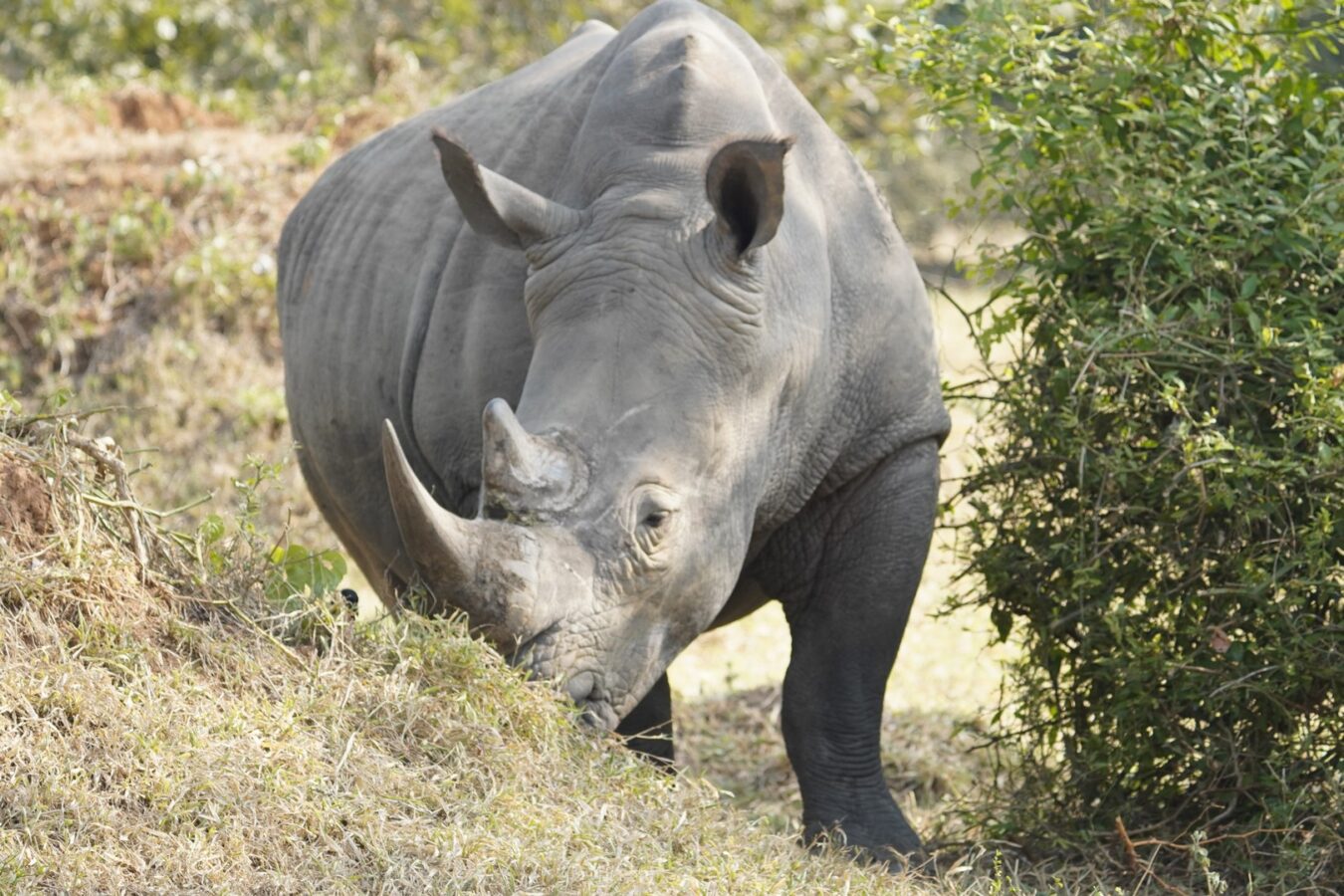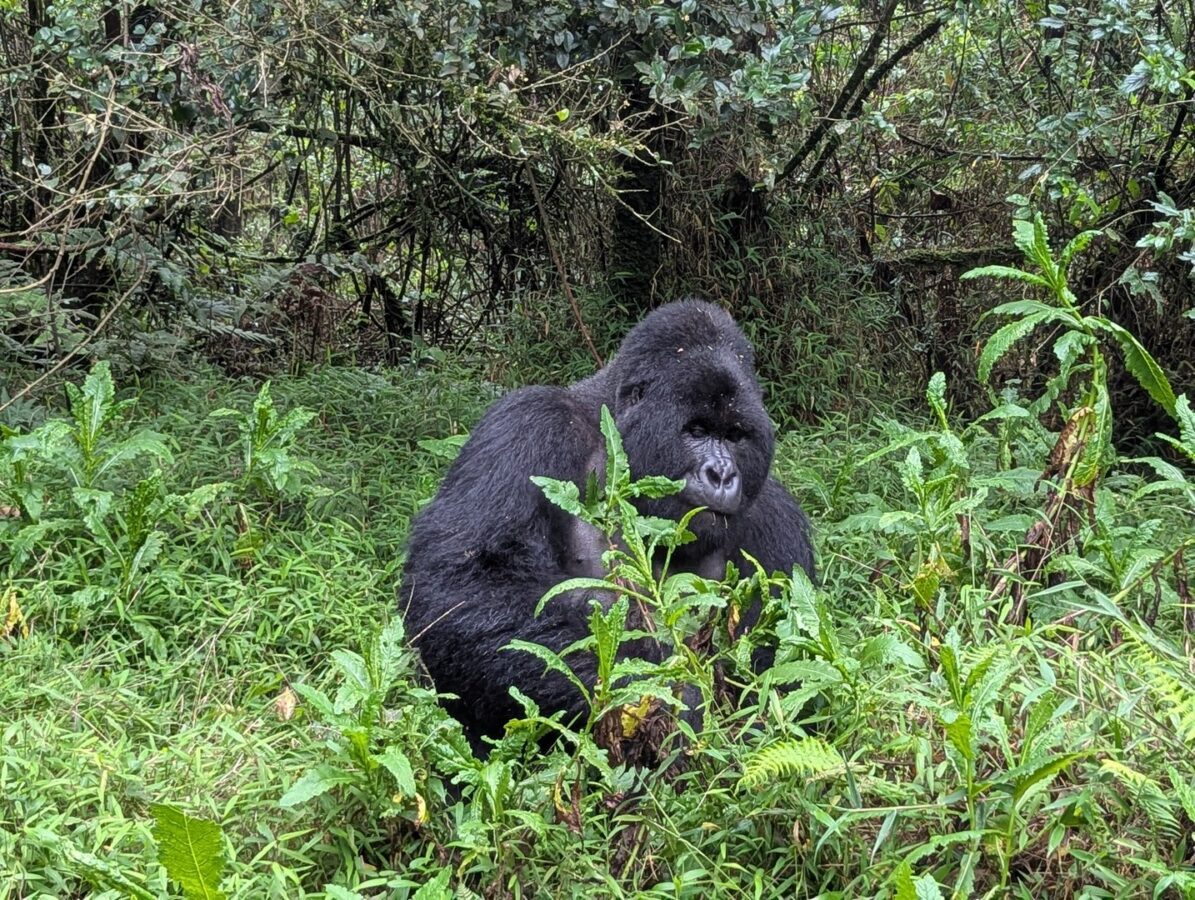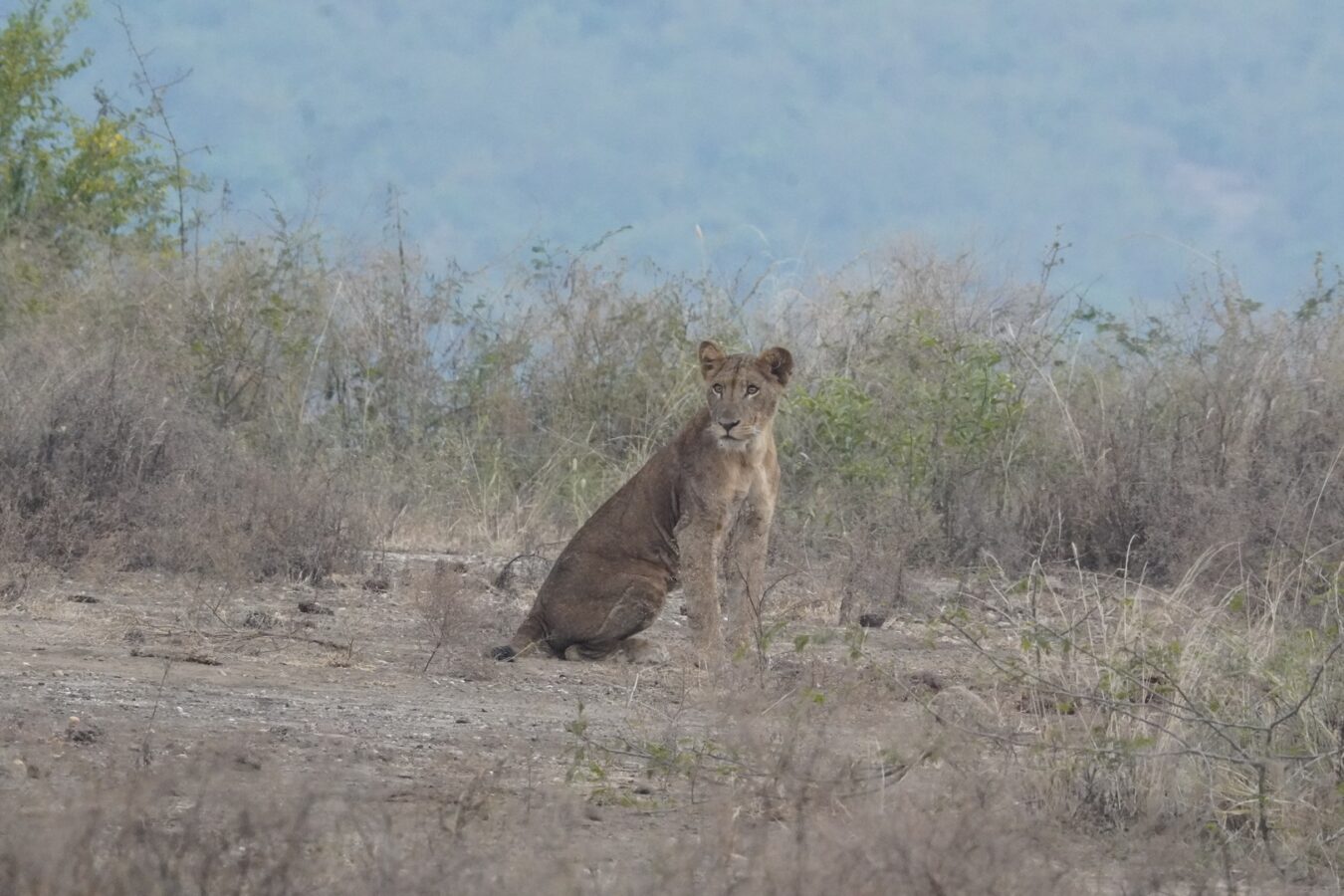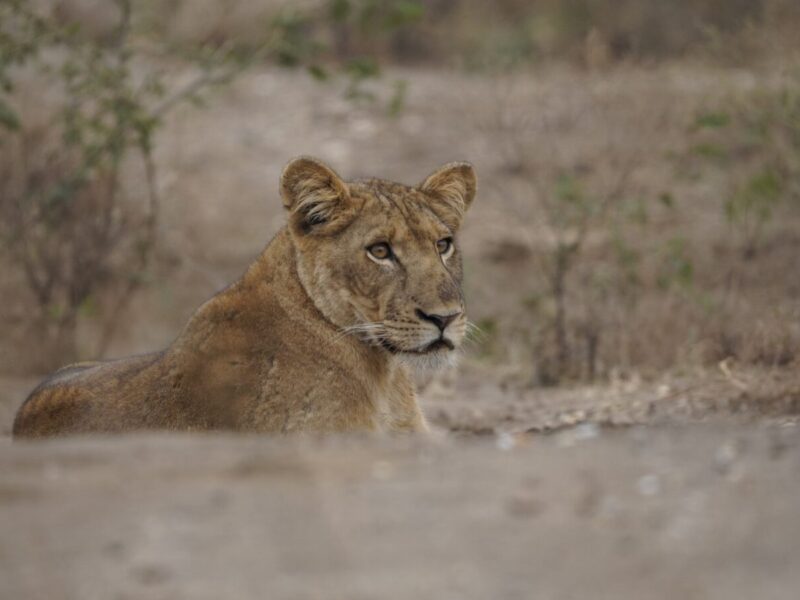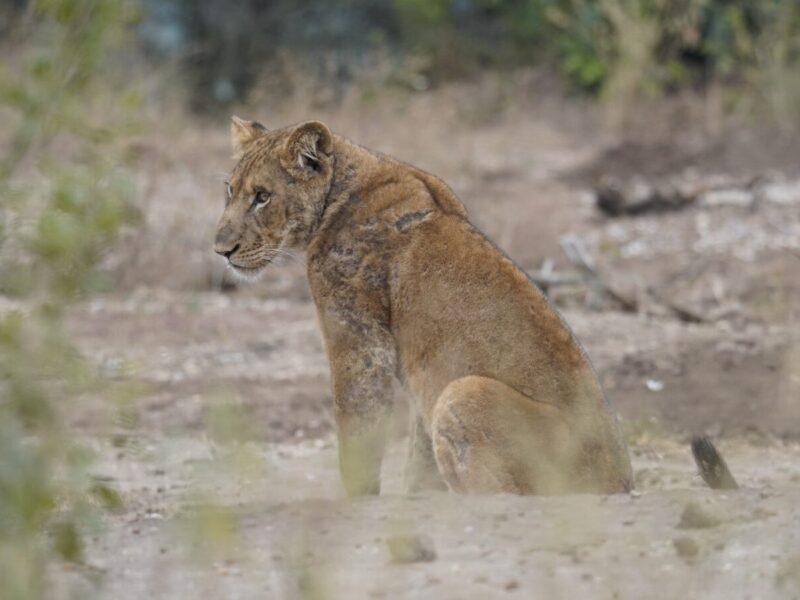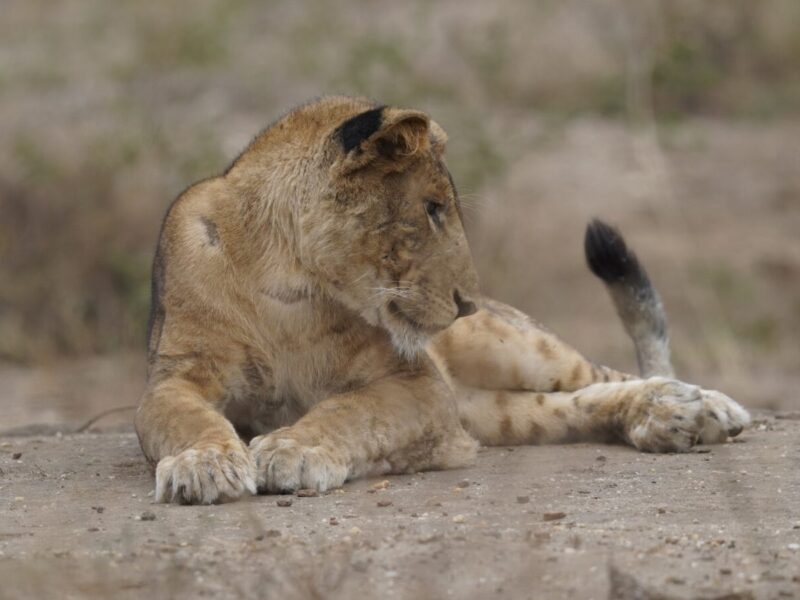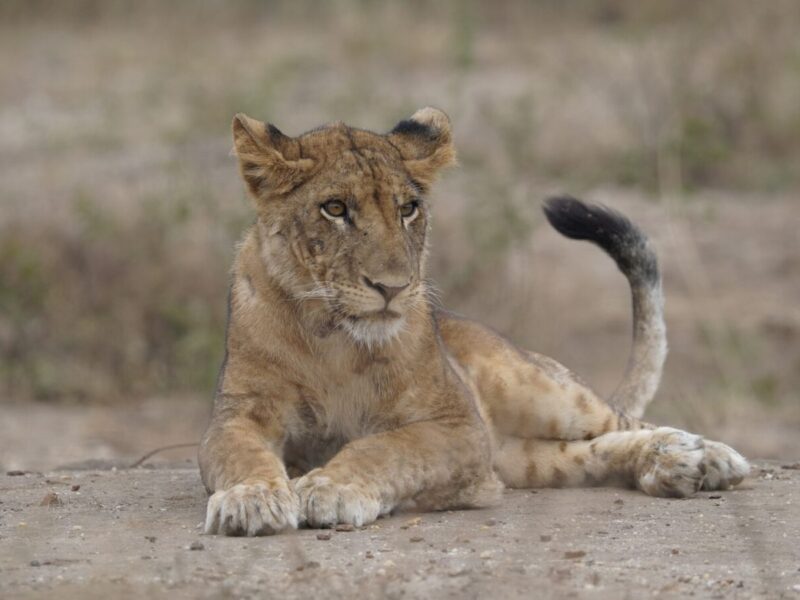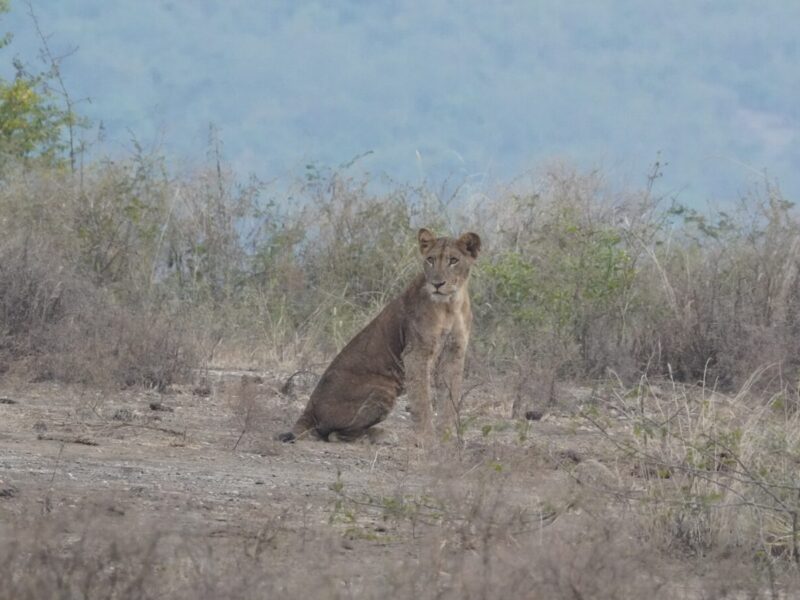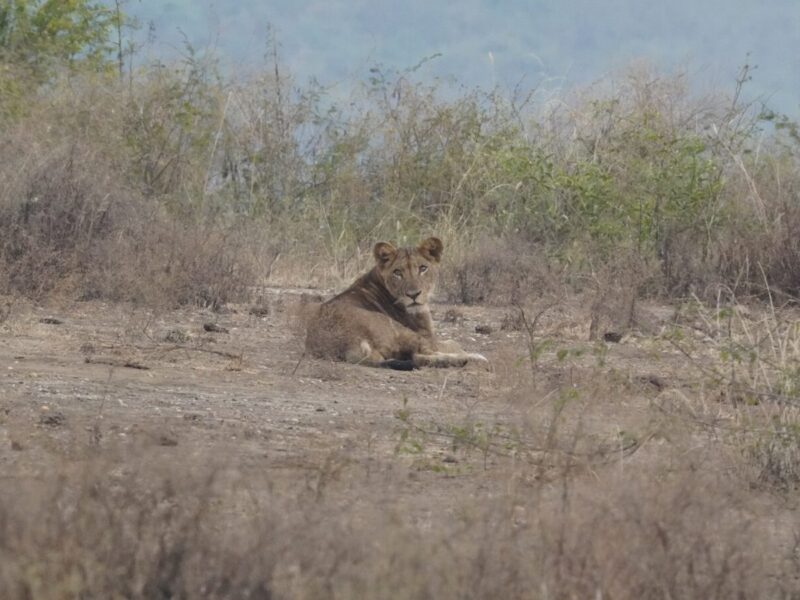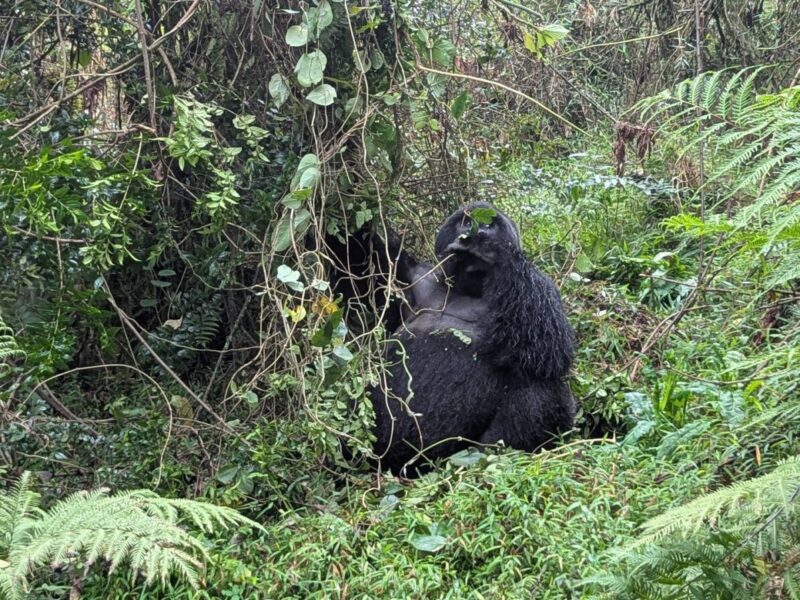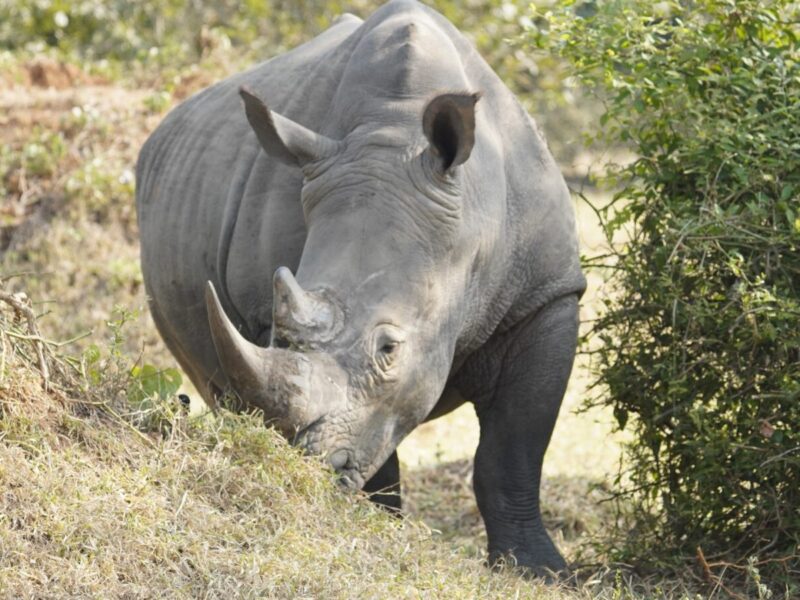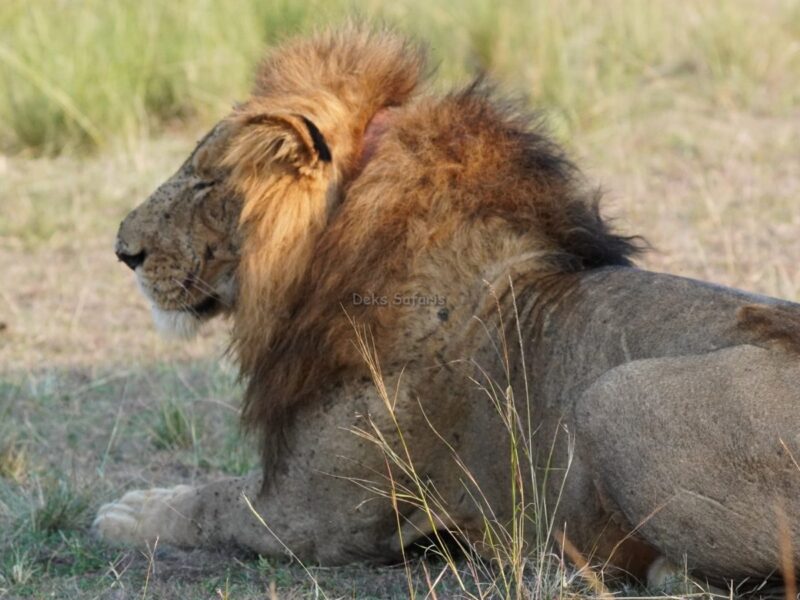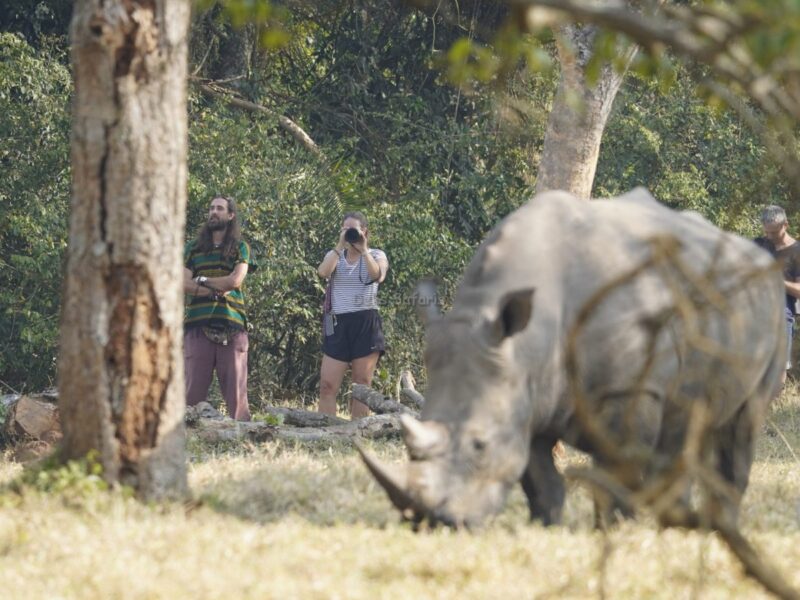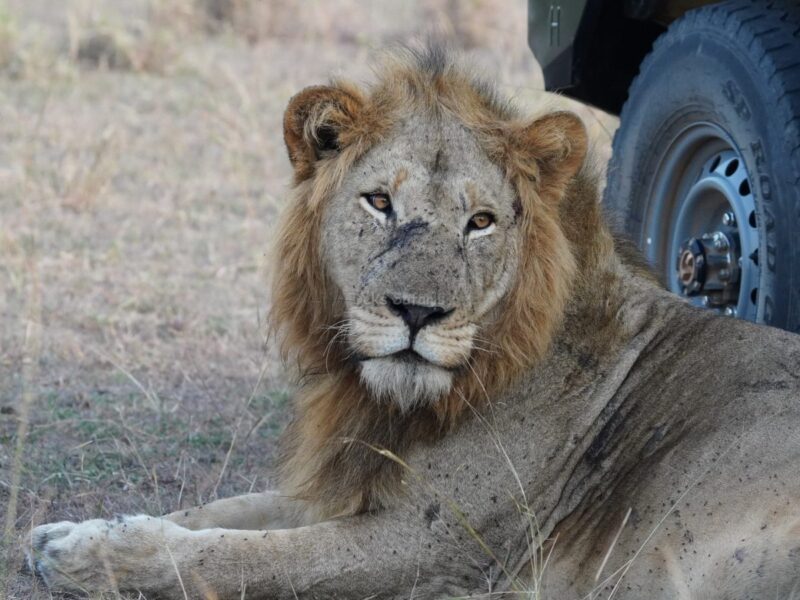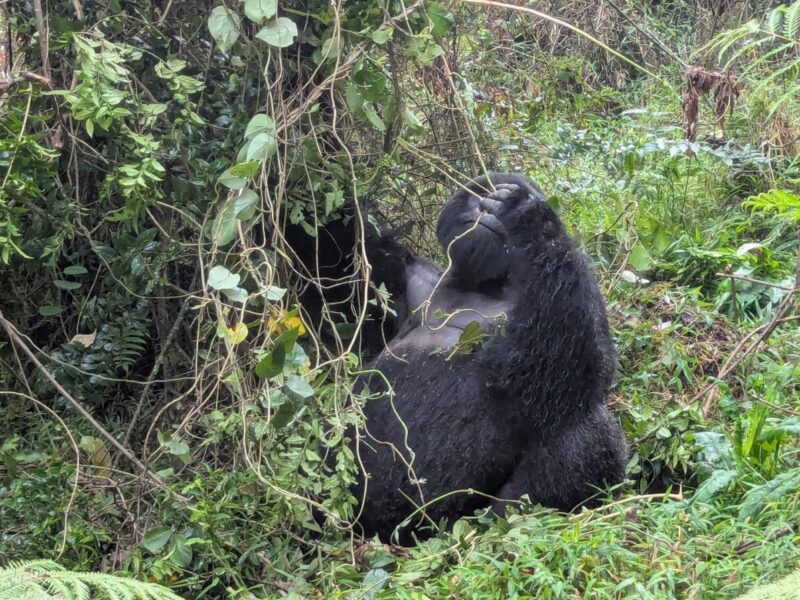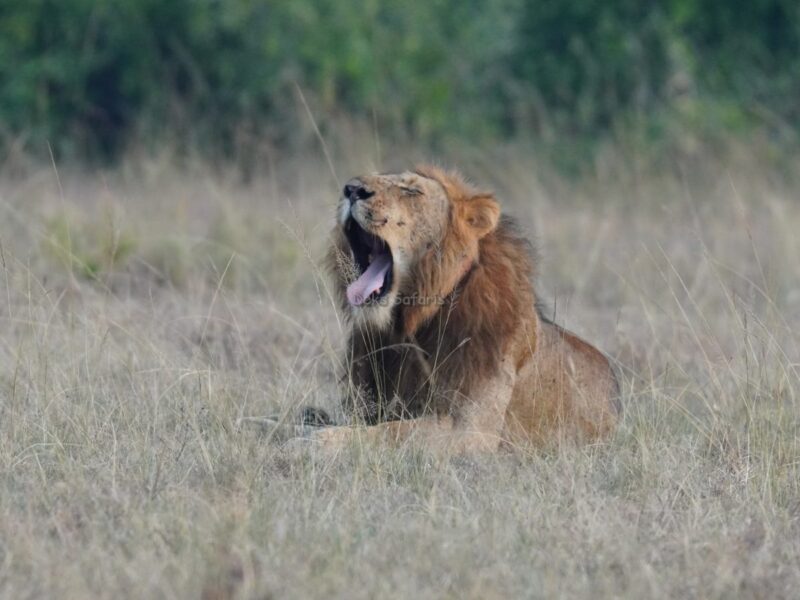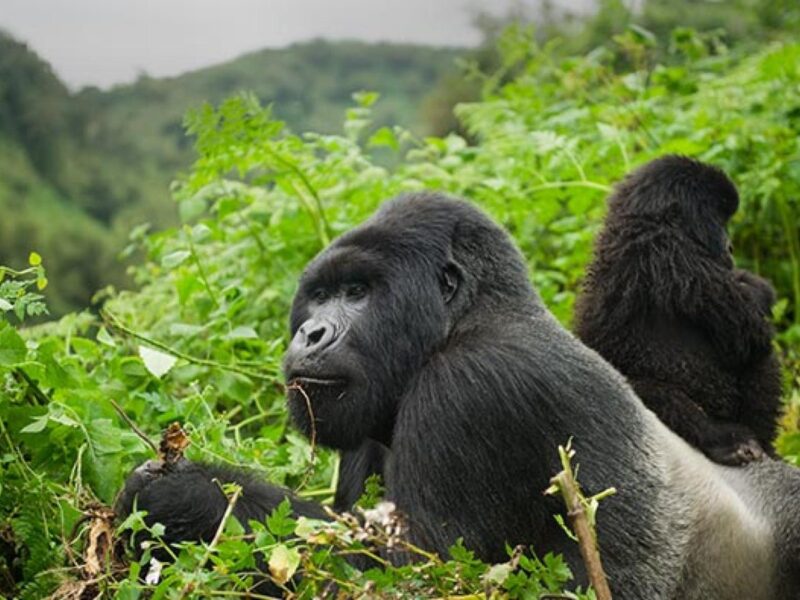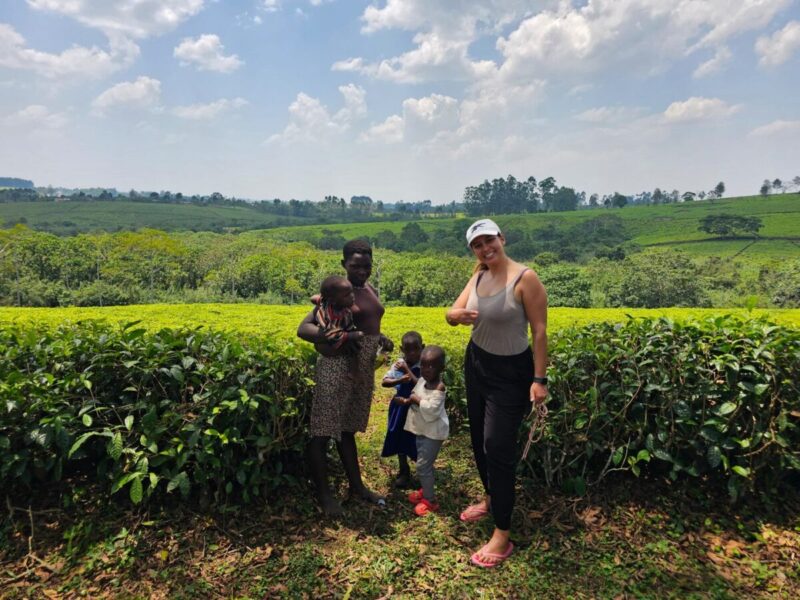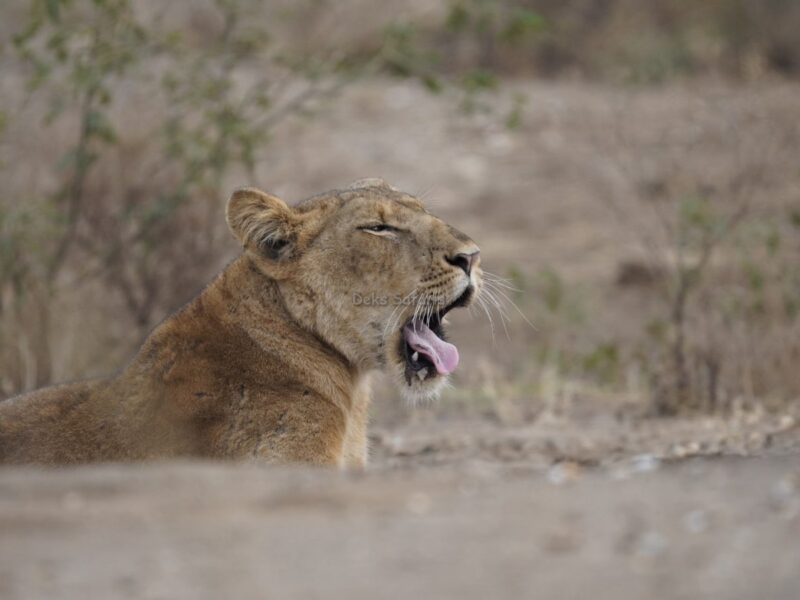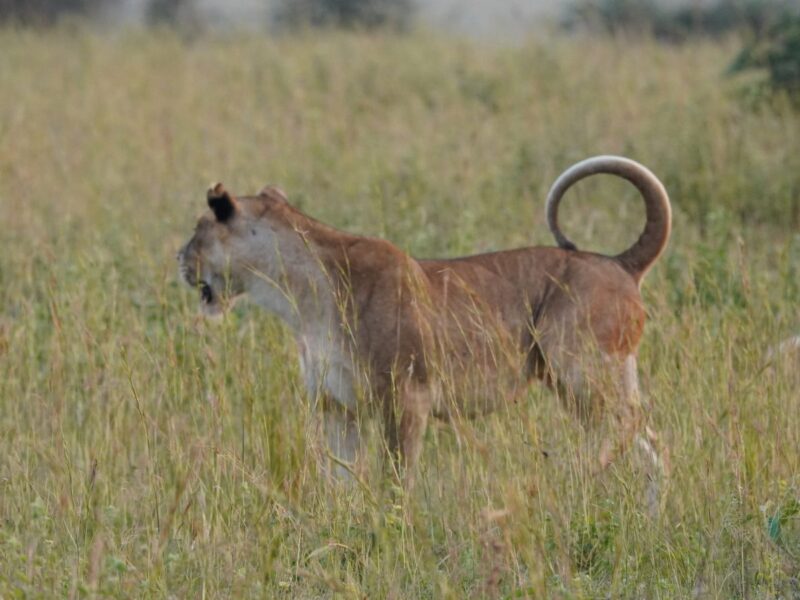16- Day Kenya and Tanzania Family Overland Safari Holiday with Deks Tours
Are you ready to embark on the best family overland tours Africa holiday that combines adventure, wildlife, culture, and learning in a single unforgettable 16- Day Kenya and Tanzania Family Overland Safari journey? Imagine your family exploring Africa’s vast landscapes, from the golden plains of the Serengeti to the dramatic cliffs of the Great Rift Valley, and meeting communities whose traditions have endured for centuries. This is more than a safari; it is a life-changing experience that blends excitement with education, offering every family member, from toddlers to grandparents, the chance to connect deeply with Africa’s wildlife, landscapes, and people. With Deks Safaris & Tours, your journey is carefully curated to provide adventure, safety, and comfort without compromising authenticity.
Africa Overland Safaris offer families a unique approach to travel. Unlike conventional tours, overland safaris immerse participants in the environment, traveling through multiple countries in specially designed 4×4 vehicles or overland trucks. Families experience the African wilderness firsthand, witnessing breathtaking sunrises, dramatic sunsets, and wildlife interactions in their natural habitats. From observing lions hunting in the early morning to elephants bathing in tranquil rivers, every moment becomes a story to share with loved ones. Overland routes such as Uganda Rwanda Kenya Tanzania Safari or 16- Day Kenya and Tanzania Family Overland Safari provide an extended perspective on Africa’s diverse ecosystems, ensuring children gain an appreciation for biodiversity and conservation.
Kenya and Tanzania Family Cultural Experience Overland Tours
A key highlight of family overland tours is the integration of cultural experiences alongside wildlife adventures. Imagine visiting a Maasai village in Loita Hills or participating in a Swahili cooking class in Kisongo, where children learn local recipes and craft traditions while engaging directly with communities. These interactions allow families to move beyond sightseeing into meaningful connections with local cultures, inspiring respect and curiosity in young minds. Activities like village walks, craft workshops, and traditional storytelling sessions are seamlessly woven into the itinerary, complementing Gorilla Trekking & Game Drives, or optional balloon safaris over the Serengeti.
How can children enjoy 16- Day Kenya and Tanzania Family Overland Safari adventure while remaining safe and comfortable? Deks Safaris & Tours addresses this by designing itineraries that are family-friendly, age-appropriate, and flexible. Routes like Overland Africa Safari & Gorilla Trekking incorporate moderated travel days, supervised wildlife viewing, and interactive learning experiences, making it suitable for children aged 8–17. For younger children, accommodations include comfortable lodges or serviced camps where meals, hygiene, and safety are prioritized. Older children benefit from hands-on activities such as wildlife tracking, guided hikes, and learning about Africa’s ancient human history. The combination of adventure, education, and comfort ensures families can enjoy the journey without stress, building memories that last a lifetime.
Can I Witness the Great Migration on the 16- Day Kenya and Tanzania Family Overland Safari?
Africa Overland Tours allow families to witness extraordinary wildlife migrations, including the wildebeest crossing the Mara River or herds of elephants navigating Botswana’s Okavango Delta. These sights are impossible to replicate in traditional safari lodges or urban zoos. Overland travel ensures families experience the raw and authentic beauty of Africa, including its remote landscapes, hidden valleys, and lesser-known national parks. The tour structure balances active exploration with downtime, offering swimming opportunities, picnic lunches in scenic locations, and evenings around a campfire under star-filled skies. For families, these moments foster bonding, storytelling, and shared adventure that extends far beyond the duration of the trip.
For families seeking the ultimate adventure, multi-country itineraries such as 16- Day Kenya and Tanzania Family Overland Safari provide a comprehensive exploration of East Africa. Families can track mountain gorillas in Uganda, view hippos and crocodiles in Kenya’s freshwater lakes, and witness predators and plains game in Tanzania’s Serengeti. Each region presents distinct wildlife, landscapes, and cultural insights, enriching the overall safari experience. Such journeys encourage children to ask questions, learn about ecosystems, and understand conservation challenges in real-time. Overland safari vehicles allow for flexible stops at scenic viewpoints, wildlife encounters, and educational moments, ensuring that the journey is as immersive as the destination.
Family Overland Tours in East Africa (Kenya and Tanzania Safari)
Overland Gorilla Trekking forms a cornerstone of many family overland tours in East Africa. Imagine walking through misty rainforests alongside expert trackers to encounter mountain gorillas. This experience teaches families about conservation, species protection, and the delicate balance of ecosystems, all while creating awe-inspiring memories. These encounters, coupled with cultural village visits and hands-on activities, position families to gain a deeper understanding of Africa’s heritage. Furthermore, the structured yet flexible itineraries allow children to engage meaningfully with local communities while observing wildlife responsibly, reinforcing principles of sustainable tourism.
When planning a family overland safari, it is essential to consider tour length, pace, and activity mix. Tours like 16- Day Kenya and Tanzania Family Overland Safari often span 14–16 days, allowing families to explore wildlife reserves, volcanic craters, lakes, and cultural villages without feeling rushed. Overland travel enables families to move seamlessly between Kenya, Tanzania, and Rwanda, optimizing wildlife encounters and cultural interactions. The integration of Gorilla Trekking and Big Five Safari ensures families witness some of Africa’s most iconic species, from lions and leopards to gorillas and elephants, while learning about conservation and biodiversity along the way.
Balancing Between Adventure & Comfort on the 16- Day Kenya and Tanzania Family Overland Safari
Another key consideration is the balance between adventure and comfort. Family overland tours incorporate serviced camps, lodges, and comfortable tents where children and adults can relax after long days of exploration. Meals are often locally inspired, allowing children to taste traditional dishes while learning about regional agriculture and culinary practices. On-route educational activities, such as craft making, cooking classes, and wildlife talks, enrich the experience and encourage children to participate actively. These elements combine to make overland tours both entertaining and intellectually stimulating, creating lifelong learning opportunities.
For parents, the reassurance of safety, structured supervision, and professional guides is paramount. Deks Safaris & Tours ensures all family overland tours include experienced crew members, certified guides, and safety protocols for wildlife encounters and long-distance travel. Vehicles are equipped with ample seating, safety belts, and observation windows, allowing everyone to enjoy uninterrupted views of Africa’s natural wonders. Overland safari vehicles are designed for long-distance travel across rugged terrains while providing comfort, ventilation, and space for luggage. This combination of safety, comfort, and adventure allows families to immerse themselves fully in the safari experience, confident that professional guidance ensures a seamless journey.
Frequently Asked Question on the 16-Day Kenya and Tanzania Family Safari
what cultural experiences can complement wildlife exploration? Each safari lodge and campsite are strategically located near local communities, offering opportunities for cultural immersion. Children can participate in Maasai village tours, storytelling sessions, and traditional dance workshops, while adults engage in cooking classes, artisan craft workshops, and guided village walks. These experiences foster mutual understanding and highlight sustainable tourism practices. By engaging respectfully with local communities, families gain insight into the daily lives, traditions, and histories of East Africa, creating a holistic safari experience that balances wildlife, adventure, and culture.
The best 16- Day Kenya and Tanzania Family Overland Safari holiday with Deks Safaris & Tours combine adventure, wildlife, culture, and learning into one cohesive journey. Families traverse iconic landscapes, engage in meaningful cultural exchanges, and encounter some of Africa’s most remarkable wildlife. From overland gorilla trekking and Big Five safaris to village visits and Swahili cooking classes, every day presents a new opportunity for education, adventure, and family bonding. By carefully planning itineraries that balance comfort, safety, and immersive experiences, Deks Safaris & Tours positions itself as a trusted authority in Africa tourism, ensuring that every family departs with unforgettable memories and a deeper appreciation of Africa’s natural and cultural heritage.
Preparing for the 16-Day Kenya and Tanzania Family Safari
Essential Preparations for Your Family Overland Safari Adventure
Embarking on the 16-Day Kenya and Tanzania Family Safari is an extraordinary journey that blends wildlife, culture, and adventure. How can we ensure everyone enjoys this adventure safely and comfortably? Preparation is key to making your best family overland tours Africa holiday seamless and memorable. From packing essentials to understanding health precautions, this section provides a comprehensive guide for families seeking the ultimate overland experience.
Overland safaris are immersive by nature, meaning families will spend long hours traveling across diverse terrains in 4×4 safari vehicles or overland trucks. Unlike resort-based holidays, these journeys take you directly into Africa’s wilderness, where the sights, sounds, and smells of the environment are part of the adventure. For children and older travelers, preparation ensures that long drives and varied accommodations remain enjoyable. Planning ahead allows families to focus on what truly matters: wildlife encounters, cultural experiences, and shared memories.
Packing Essentials: What Every Family Needs
Packing for the 16-Day Kenya and Tanzania Family Overland Safari requires thoughtful consideration. What should we bring for 16 days of adventure across Kenya and Tanzania? Clothing should be light, breathable, and neutral-colored to blend with the environment, which enhances wildlife viewing. Avoid bright colors that may startle animals during game drives. Layered clothing is essential, as temperatures vary greatly between early morning safaris, hot midday hours, and cooler evenings at higher altitudes like the Ngorongoro Crater.
Comfortable walking shoes or hiking boots are crucial for village walks, forest treks, and optional hiking activities. Sandals or water shoes are useful for riverside activities, swimming pools at lodges, and beach-style relaxation around campsites. Hats, sunglasses, and sunscreen are indispensable for sun protection during long drives and outdoor excursions. Families should also pack insect repellent, particularly for areas around lakes, rivers, and tropical forests, to protect against mosquitoes and other insects.
A well-organized daypack is invaluable. Families can carry water bottles, snacks, cameras, binoculars, and small personal items while keeping their main luggage secured in safari vehicles. Waterproof bags or zip-locks are recommended for electronic devices, passports, and travel documents, as unpredictable weather can occur. Lightweight rain jackets or ponchos are essential, especially in regions like the Serengeti and Lake Naivasha, where sudden showers are common.
Travel Documents, Visas, and Health Precautions
To travel smoothly on 16-Day Kenya and Tanzania Family Overland Safari, families must ensure all travel documents are in order. Passports should have at least six months’ validity from the date of entry. Many East African countries, including Kenya and Tanzania, require visas. Families can obtain e-visas prior to arrival or upon entry, but pre-arranged visas reduce wait times and avoid potential delays. Travel insurance is highly recommended and should cover medical emergencies, evacuation, and personal belongings.
Health preparation is equally crucial. Families should consult a travel doctor at least six weeks prior to departure. Vaccinations typically required include yellow fever, typhoid, hepatitis A and B, and routine immunizations. Malaria prophylaxis is strongly advised, especially for children, as many safari destinations, including Lake Naivasha and Masai Mara, are malaria-prone areas. Parents should carry a basic first-aid kit with bandages, antiseptic, fever medication, motion sickness remedies, and any prescription medications for children. Hydration and nutrition are also important during long drives, and overland guides provide regular stops for water and light meals.
Preparing Children for Overland Travel
How can children fully enjoy the 16-Day Kenya and Tanzania Family Overland Safari? The key is preparation and clear expectations. Children aged 8–17 can handle overland travel effectively with proper guidance. For younger children, parents should plan engaging activities such as wildlife spotting charts, educational games, and journaling to maintain focus and excitement during long drives.
It is important to discuss the itinerary with children beforehand. Explain that days will start early with morning game drives and may involve long periods in safari vehicles. Emphasize the adventure aspects, such as spotting lions, giraffes, and elephants in their natural habitat, participating in cultural activities, and learning to cook traditional Swahili meals with local families. Including children in preparation fosters excitement and helps them feel involved.
Parents should also prepare for overnight camping experiences. While some nights are spent in serviced camps or lodges, other nights involve tents with basic facilities. Children should be familiar with sleeping bags, flashlights, and basic campsite routines. Safety rules are essential: staying close to the group, respecting wildlife, and following guides’ instructions ensures a secure and enjoyable experience for everyone.
Choosing Appropriate Safari Gear
Selecting the right gear enhances comfort, safety, and enjoyment. Families should invest in binoculars for wildlife viewing, cameras for capturing memories, and a field guide to African wildlife. Compact travel pillows, lightweight sleeping bags, and reusable water bottles improve overnight camping comfort.
Electronics require preparation too. Many overland safari vehicles provide power outlets for charging devices, but solar chargers or power banks offer reliable backup for photography and communication needs. Waterproof cases or dry bags protect phones, tablets, and cameras from dust and rain. Sunscreen, hats, and UV-protective clothing protect the family from intense equatorial sun.
Children may appreciate small backpacks with their own essentials, including snacks, water, and travel-friendly entertainment like coloring books or binoculars. Organizing personal gear ensures independence and reduces stress for parents during travel.
Health, Hygiene, and Food Considerations
Maintaining good health during a 16-Day Kenya and Tanzania Family Overland Safari is essential. Families should practice regular handwashing and carry hand sanitizers, especially during village visits or after meals in remote camps. Guides provide bottled water for drinking, but children should be reminded to stay hydrated throughout the day.
Meals on overland Africa safaris are carefully prepared, often combining local flavors with familiar dishes to suit all ages. Participating in cooking classes, such as preparing Swahili meals in Kisongo, allows children to learn about local food culture while enjoying safe, freshly prepared dishes. Parents should inform tour operators of dietary restrictions, allergies, or special needs to ensure meals accommodate everyone safely.
Safety Guidelines for Wildlife Encounters
How do we keep children safe during game drives and wildlife activities? Safety begins with understanding animal behavior and following guides’ instructions. Overland safari vehicles are equipped with observation decks, railings, and experienced guides who manage wildlife encounters at a safe distance. Children are instructed never to leave vehicles without supervision, maintain quiet during game drives, and avoid feeding or approaching animals.
In addition to wildlife safety, families should be cautious near water sources, rocky terrain, and forested areas. Guides provide briefings at each location, highlighting local hazards, emergency procedures, and safe conduct. Adhering to these instructions ensures the 16-Day Kenya and Tanzania Family Overland Safari remains exciting yet secure for everyone.
Mental and Emotional Preparation
Kenya and Tanzania Overland safaris involve long days, early mornings, and exposure to new environments. Preparing mentally and emotionally is as important as packing physically. Families should discuss the expectations, including shared accommodations, varying levels of comfort, and flexible daily schedules. Children can benefit from discussions about wildlife, conservation, and the importance of respecting local cultures.
Overland travel fosters resilience, curiosity, and adaptability. By framing challenges as part of the adventure, families can embrace the journey, turning potential discomfort into memorable experiences. Group travel also encourages social interaction, allowing children to make friends with peers on the tour, while adults engage in networking and cultural exchange.
Arrive Ready for Adventure
Proper preparation transforms a 16-Day Kenya and Tanzania Family Safari into a seamless, immersive, and unforgettable experience. By packing wisely, securing health precautions, preparing children, and selecting suitable gear, families position themselves for adventure, learning, and bonding. Safety, comfort, and engagement are central to enjoying overland travel while experiencing Africa’s wildlife, landscapes, and cultures fully.
With Deks Safaris & Tours, families receive detailed guidance on every aspect of preparation, ensuring the journey is enjoyable, secure, and educational. Overland Kenya and Tanzania safari preparation is not just about luggage or documents; it is about setting the stage for exploration, cultural immersion, and family growth. By investing time in planning, families can step into the adventure confidently, knowing they are ready to explore the extraordinary wildlife of the Serengeti, the dramatic Ngorongoro Crater, and the cultural richness of Maasai and Swahili communities.
Nairobi Adventures – Gateway to East Africa for Families
Starting the 16-Day Kenya and Tanzania Family Safari in Nairobi allows families to immerse themselves immediately in East Africa’s vibrant culture, history, and wildlife. Nairobi is more than a transit hub; it is a dynamic city offering interactive experiences for families, setting the stage for an unforgettable best family overland tours Africa holiday. From wildlife sanctuaries to cultural museums, Nairobi combines education, adventure, and fun in a safe, family-friendly environment.
What makes Nairobi a perfect starting point for overland safaris? The city provides access to iconic parks like Nairobi National Park, just a short drive from the city center, allowing children to witness lions, giraffes, and rhinos against the backdrop of urban skyscrapers. The juxtaposition of nature and city life makes Nairobi an ideal introduction to African wildlife. With carefully guided excursions, families experience firsthand how urban and natural ecosystems coexist, inspiring curiosity in young explorers.
Wildlife Encounters in Nairobi
One of Nairobi’s most compelling attractions for families is the Langata Giraffe Sanctuary. Here, children can feed giraffes from hand-held treats, observing these gentle giants up close. This encounter fosters awareness about wildlife conservation while providing countless photo opportunities. Similarly, Nairobi National Park offers game drives within easy reach of the city, giving families their first taste of Big Five safari experiences without leaving Nairobi. These wildlife interactions ignite excitement for the Overland Gorilla Trekking and Game Drives awaiting later in the safari.
How can children safely engage with wildlife? Nairobi’s sanctuaries and parks prioritize visitor safety, with trained guides ensuring animals are observed respectfully. Educational programs highlight conservation efforts, including anti-poaching initiatives and habitat restoration projects. Children gain insights into protecting endangered species while developing an appreciation for Africa’s natural heritage.
Cultural Insights: Museums and Traditions
Nairobi is also a hub for cultural exploration on the 16-Day Kenya and Tanzania Family Overland Safari. Visiting the Karen Blixen Museum introduces families to Kenya’s colonial history, literature, and the famed author of Out of Africa. The museum, set in a colonial-era farmhouse surrounded by gardens, allows families to explore historical artifacts, period furniture, and exhibits about early African settlement. Children can engage with storytelling sessions that bring history to life, complementing wildlife experiences with cultural depth.
Another must-visit is the Bomas of Kenya, an open-air cultural village showcasing traditional homesteads from different Kenyan people. Families can walk through thatched huts, watch traditional dance performances, and participate in craft-making workshops. Children experience hands-on learning about Kenyan traditions, understanding how communities have adapted to modern life while preserving cultural identity. These immersive experiences prepare families for later visits to Maasai and Swahili villages during the overland safari.
Urban Adventures for Families
Beyond wildlife and cultural education, Nairobi offers optional urban adventures. Families may enjoy a guided City Experience Urban Adventure, exploring bustling markets, local cuisine, and artistic spaces. The activity combines sightseeing with interactive learning, making it ideal for older children who enjoy curiosity-driven exploration. Visiting Nairobi’s art galleries or artisan markets introduces children to contemporary African art, complementing their traditional cultural experiences.
Families can also explore Nairobi’s natural reserves, including riverside parks and botanical gardens, which provide safe spaces for outdoor play and relaxation. These excursions combine education with recreation, reinforcing the connection between urban life and Africa’s natural landscapes.
Planning Optional Experiences in Nairobi
Which optional activities are worth including in the Nairobi segment of the 16-Day Kenya and Tanzania Family Overland Safari? The choices are diverse, ensuring every age group finds something engaging:
- Langata Giraffe Sanctuary – close encounters with giraffes, feeding sessions, and guided tours.
- Karen Blixen Museum – historical insights, interactive exhibits, and storytelling sessions.
- Bomas of Kenya – tribal homesteads, traditional dances, and craft workshops.
- City Experience Urban Adventure – local markets, street food tastings, and urban exploration.
Optional activities enhance family engagement and provide opportunities for children to ask questions, develop curiosity, and connect with Kenya’s history and wildlife. Parents can select experiences that balance education and entertainment, creating a strong foundation for the overland safari ahead.
Safety, Comfort, and Convenience
Nairobi’s family-friendly infrastructure makes it a secure and comfortable starting point. Hotels such as Heron Court Portico provide safe accommodations with modern amenities, swimming pools, and communal spaces for children to relax. Families can recover from long flights, prepare for upcoming safari drives, and enjoy leisurely exploration before the adventure begins.
Safety is paramount, and guides ensure that all activities, whether in urban spaces, wildlife sanctuaries, or cultural villages, adhere to strict protocols. Children learn to respect wildlife boundaries, interact appropriately with locals, and navigate new environments confidently. Comfort, convenience, and safety in Nairobi allow families to start the best family overland tours Africa holiday energized and fully prepared for long drives to Arusha, Karatu, and the Serengeti.
Integrating Nairobi into the Overland Safari
Nairobi is more than a starting city; it is an integral part of the 16-Day Kenya and Tanzania Family Overland Safari narrative. Families begin to understand the broader East African ecosystem, observing how wildlife, culture, and urban development interact. This knowledge becomes relevant as the safari moves into Uganda, Kenya, and Tanzania, especially when participating in Overland Gorilla Trekking, Gorilla Trekking and Wildlife Safari, and Gorilla Trekking and Big Five Safari activities.
The city experience complements natural exploration, providing context about human history, local traditions, and conservation efforts. Children develop awareness of regional biodiversity, cultural heritage, and sustainable tourism practices. By the time the 16-Day Kenya and Tanzania Family Overland Safari begins in earnest, families have both the practical knowledge and cultural appreciation to engage fully with each destination.
Family Engagement in Nairobi
Nairobi offers numerous opportunities for family engagement beyond passive sightseeing. Children can participate in craft-making sessions at Bomas of Kenya, learn Swahili phrases from local guides, and understand wildlife diets at the giraffe sanctuary. These experiences foster respect for both culture and nature. Parents can join cooking demonstrations or guided nature walks, encouraging intergenerational learning.
By involving children actively, the 16-Day Kenya and Tanzania Family Overland Safari becomes a participatory adventure rather than a series of passive observations. This engagement lays the foundation for later interactions in Maasai villages, Kisongo cooking classes, and the unforgettable gorilla trekking encounters in Uganda.
Nairobi as the Gateway
Starting a 16-Day Kenya and Tanzania Family Safari in Nairobi combines wildlife, culture, and urban adventure. From feeding giraffes at Langata Sanctuary to exploring tribal homesteads at Bomas of Kenya, families experience a seamless blend of education, fun, and preparation for overland travel. Optional activities allow for flexible itineraries tailored to children’s interests, while hotels and guides ensure comfort and safety. Nairobi provides the ideal introduction to East Africa, offering wildlife, cultural insights, and practical orientation before venturing into the Serengeti, Ngorongoro Crater, and Maasai Mara.
With Nairobi as a gateway, families gain knowledge, confidence, and excitement, creating anticipation for the Overland Africa Safari & Gorilla Trekking experiences awaiting them. From cultural immersion to wildlife observation, the city prepares children and adults alike for a holistic and unforgettable African adventure. Families leave Nairobi enriched, educated, and inspired, ready to explore the natural and cultural treasures of East Africa.
Arusha and Karatu – Safari Gateway to Ngorongoro and Serengeti
Arrival in Arusha: The Heart of Tanzania’s Safari Circuit
As your 16-Day Kenya and Tanzania Family Safari moves from Nairobi into Tanzania, the city of Arusha serves as the perfect gateway to East Africa’s iconic wildlife destinations. Nestled at the base of Mount Meru and just a short drive from Mount Kilimanjaro, Arusha provides a unique combination of urban convenience, stunning natural beauty, and access to world-renowned safari regions. Why start the 16- Day Kenya and Tanzania Family Overland Safari here? Arusha is more than a stopover; it is the launching point for immersive overland experiences, including Africa Overland Safaris, Gorilla Trekking and Big Five Safari, and Overland Africa Safari & Gorilla Trekking adventures.
Upon arrival, families typically enjoy a leisurely breakfast before heading to accommodations such as Summit Lodge, which offers child-friendly amenities, swimming pools, and relaxing communal spaces. The city provides an ideal opportunity to acclimatize to Tanzanian time zones, climates, and landscapes before venturing deeper into wildlife reserves. Children can appreciate the scenic views of Mount Meru, the rolling hills, and local agricultural communities while parents review the upcoming itinerary, ensuring everyone is prepared for the journey ahead.
Understanding Arusha’s Cultural and Historical Significance
Arusha is not just a gateway to wildlife; it is a vibrant cultural hub. Families often explore local markets, learning about traditional Tanzanian crafts, fresh produce, and local cuisine. Engaging with local artisans allows children to witness the intricate work behind wood carvings, beadwork, and handwoven textiles. These experiences create meaningful connections between tourists and the local community, reinforcing sustainable tourism practices.
The city also offers historical insights, such as visits to local museums that highlight Tanzania’s colonial history, independence movements, and cultural heritage. Learning about the diverse ethnic groups in the region including the Maasai, Chagga, and Meru communities prepares families for later immersive experiences in Karatu, Ngorongoro, and surrounding villages. Children gain early exposure to concepts of cultural respect, hospitality, and the importance of preserving local traditions.
Transitioning to Karatu: The Gateway to Ngorongoro Crater
After a night in Arusha, the overland safari continues toward Karatu, a small town located on the edge of the Ngorongoro Conservation Area. Karatu serves as a strategic stop for families to prepare for the more rugged, wildlife-focused segments of the safari, including game drives in the Serengeti and crater floor excursions. Why Karatu? The town’s proximity to Ngorongoro and Serengeti provides convenience for vehicle staging, accommodation, and cultural immersion, making it an essential hub on any Africa Overland Tour.
On arrival in Karatu, families typically settle into camping grounds such as Kudu Campsite, which provides essential amenities while maintaining an authentic safari experience. Children enjoy safe swimming areas, while adults can review safety guidelines, wildlife behavior, and the day’s schedule. Karatu offers a transition from urban exploration in Arusha to the immersive natural landscapes of Tanzania, balancing comfort with adventure.
Cultural Immersion in Kisongo Village
One of the 16-Day Kenya and Tanzania Family Overland Safari highlights of the Karatu experience is the visit to Kisongo Village, where families engage in hands-on cultural activities. Here, children and adults participate in Swahili cooking classes led by local women, learning to prepare traditional dishes such as chapati, ugali, and vegetable stews. Families witness how meals are prepared using locally sourced ingredients, connecting food to culture, agriculture, and daily life.
Beyond cooking, village walks offer insights into the construction of traditional bomas, homes made of cow dung, mud, and thatched roofs. Children observe livestock management, water collection practices, and artisanal crafts. Guides provide translation and context, ensuring that families understand the cultural significance of each activity. These immersive experiences strengthen cultural awareness, empathy, and curiosity, aligning perfectly with the educational objectives of Africa Overland Safaris and Overland Africa Safari & Gorilla Trekking.
Preparing for Wildlife Encounters
Karatu also serves as a final preparation point for the wildlife-intensive segments of the safari. Families receive briefings on safety protocols for game drives in the Serengeti and Ngorongoro Crater. Guides explain animal behavior, highlight the importance of maintaining safe distances, and demonstrate proper etiquette for photography and observation. These preparations ensure that children and adults alike can enjoy encounters with lions, elephants, rhinos, and other iconic species safely.
Packing for wildlife excursions requires attention to detail. Families are reminded to bring binoculars, cameras, sun protection, and comfortable clothing suitable for early morning and late afternoon drives. Layered clothing is essential for temperature fluctuations, while sturdy walking shoes or sandals are recommended for short guided walks. Hydration packs and reusable water bottles are provided, emphasizing both safety and sustainability.
Safari Education: Understanding Conservation and Ecosystems
Arusha and Karatu provide an opportunity to introduce children to wildlife conservation and ecosystem management before entering protected areas. Families learn about the delicate balance between predators and prey, the role of herbivores in maintaining grassland ecosystems, and the importance of preserving natural habitats. Guides explain how conservation efforts, including anti-poaching patrols and habitat restoration, contribute to the sustainability of Tanzania’s national parks.
Children gain insight into human-wildlife coexistence, particularly in regions where Maasai communities graze cattle near wildlife corridors. By understanding the interconnections between local communities, wildlife, and conservation initiatives, families develop a deeper appreciation for sustainable tourism practices, preparing them for ethical interactions in the Serengeti and Ngorongoro Crater.
Early Evening Activities and Relaxation
Evenings in Karatu are an ideal time for families to unwind and reflect on the day’s activities. Campsites often provide communal areas for storytelling, stargazing, and family bonding. Children can share observations from cultural walks or cooking classes, while adults discuss photography, wildlife behavior, and upcoming overland safari routes.
Meal times at campsites offer opportunities to experience Tanzanian hospitality firsthand. Shared dining encourages interaction between families traveling together, fostering friendships and a sense of community. Guides often incorporate educational elements into meals, explaining local ingredients, spices, and traditional preparation techniques. These moments reinforce the holistic learning experience central to best family overland tours Africa holiday itineraries.
Preparing for the Serengeti and Ngorongoro Crater
As the family overland safari progresses, Karatu serves as a practical base to finalize preparations for the Serengeti and Ngorongoro. Guides conduct vehicle checks, review emergency procedures, and provide orientation on navigation through savannah plains and crater terrain. Families are reminded to keep cameras ready, maintain vigilance during early morning and late afternoon drives, and follow all instructions to ensure a safe and memorable experience.
Children benefit from pre-16-Day Kenya and Tanzania Family Overland Safari briefings, learning to identify common species, track animal signs, and observe behavior patterns. These preparatory sessions enhance engagement and create anticipation for the vast plains and dramatic crater landscapes that await. Families leave Karatu confident, knowledgeable, and ready to experience some of Africa’s most iconic wildlife environments.
Arusha and Karatu as the Gateway
Arusha and Karatu form the essential gateway to Tanzania’s world-renowned safari destinations. Families enjoy cultural immersion, hands-on learning experiences, and practical preparation for wildlife encounters. From the scenic base of Mount Meru to the immersive village visits in Kisongo, children and adults alike gain an understanding of Tanzanian culture, conservation, and the logistics of overland travel.
These experiences prepare families for the Overland Gorilla Trekking and Game Drives, Gorilla Trekking and Big Five Safari, and other wildlife-focused adventures awaiting in the Serengeti, Ngorongoro Crater, and beyond. By blending cultural learning, practical preparation, and relaxation, Arusha and Karatu ensure that families are not only ready for adventure but also enriched, engaged, and inspired.
Serengeti National Park – The Heart of Wildlife Adventures
Why the Serengeti Is a Family Safari Highlight
The Serengeti National Park represents the pinnacle of any 16-Day Kenya and Tanzania Family Safari, offering unparalleled opportunities for wildlife encounters, family bonding, and unforgettable overland adventures. Renowned worldwide for its vast savannahs, teeming wildlife, and awe-inspiring landscapes, the Serengeti sets the stage for immersive Africa Overland Safaris and Gorilla Trekking and Wildlife Safari experiences. Why is the Serengeti so iconic? Its significance lies not only in the sheer variety of species but also in the accessibility of these animals to overland vehicles, ensuring a safe yet thrilling encounter for children and adults alike.
The Serengeti’s expansive plains, stretching over 14,750 square kilometers, host the annual migration of millions of wildebeest, zebras, and gazelles. This natural spectacle forms one of the most extraordinary wildlife events on Earth, captivating visitors and providing exceptional opportunities for photography, observation, and educational engagement. For families traveling on Overland Africa Safari & Gorilla Trekking itineraries, the Serengeti offers a dynamic blend of wildlife discovery, outdoor learning, and immersive safari adventure.
Planning Your Family Safari in the Serengeti
Preparation is key to maximizing the Serengeti experience. Families must consider factors such as game drive schedules, weather conditions, and wildlife behavior. Early morning and late afternoon drives offer the best chances to spot predators like lions, cheetahs, and leopards while observing herbivores grazing in the golden light of sunrise and sunset. Children quickly learn to associate animal behavior with time of day, deepening their understanding of ecosystem dynamics.
Overland vehicles are equipped for comfort and visibility, with large windows, raised seating, and guides skilled in tracking wildlife. Families receive pre-drive briefings highlighting safety measures, including staying seated, keeping arms inside the vehicle, and maintaining a respectful distance from animals. These safety protocols ensure children enjoy interactive and thrilling encounters without compromising security.
Game Drives: Immersive Wildlife Encounters
Game drives in the Serengeti are the highlight of 16-Day Kenya and Tanzania Family Overland Safari. Families traverse endless plains dotted with acacia trees, rolling hills, and seasonal rivers, observing iconic species such as elephants, giraffes, zebras, wildebeest, and buffaloes. Predators lurk nearby, offering the rare opportunity to witness hunting behavior and interspecies interactions firsthand.
Guides tailor drives to family interests. Children fascinated by birds can focus on avian species like ostriches, secretary birds, and vultures. Animal enthusiasts can track big cats, observing their hunting techniques and social dynamics. Families often find themselves witnessing impromptu wildlife interactions lions resting under a tree, elephants crossing a river, or cheetahs sprinting across the plains. Each sighting becomes an educational moment, highlighting survival strategies, food chains, and ecological balance.
Educational and Interactive Experiences
The Serengeti experience is not solely visual; it is also highly interactive and educational. Guides share insights about migration patterns, predator-prey relationships, and the role of each species in maintaining ecosystem stability. Children and adults learn to identify tracks, interpret animal behavior, and appreciate conservation efforts that protect endangered species.
Families often engage in Overland Gorilla Trekking and Game Drives, comparing forest-dwelling species like gorillas with open-plain wildlife in the Serengeti. This comparison enhances understanding of habitat diversity, adaptation, and conservation challenges across East Africa. Children develop an early appreciation for sustainable tourism practices, learning that ethical observation and environmental respect are essential components of 16-Day Kenya and Tanzania Family Overland Safari adventure.
Family-Friendly Safari Tips
Families traveling with children in the Serengeti benefit from several practical tips to ensure a smooth experience:
- Early Mornings: Wildlife is most active at dawn. Dress in layers to accommodate cooler morning temperatures.
- Binoculars and Cameras: Equip each family member to maximize wildlife viewing and capture memorable moments.
- Hydration and Snacks: Bring water and light snacks, as drives can last several hours.
- Sun Protection: Wide-brimmed hats, sunscreen, and sunglasses are essential in open plains.
- Clothing Colors: Neutral colors such as khaki, brown, and green reduce visibility to wildlife while blending with the environment.
- Educational Engagement: Encourage children to ask questions and record observations, turning each game drive into a hands-on learning experience.
These simple strategies enhance safety, comfort, and engagement, ensuring the family enjoys every moment of the 16-Day Kenya and Tanzania Family Overland Safari.
Accommodation and Overland Camping in the Serengeti
Families have options ranging from traditional overland camping to luxury lodges within or near the Serengeti. Camping offers an authentic, immersive experience: children wake to the sounds of birds, lions, and elephants, gaining a sensory connection with the wild. Campsites are equipped with essential facilities, communal areas, and trained staff to ensure safety and comfort.
Alternatively, lodges provide amenities such as pools, family suites, and guided night drives, ideal for families seeking additional comfort without sacrificing proximity to wildlife. Regardless of choice, all accommodations integrate seamlessly with Africa Overland Tours, offering convenient staging points for morning and afternoon drives while reinforcing the adventure and educational focus of the 16-Day Kenya and Tanzania Family Overland Safari.
Optional Experiences: Balloon Safaris and Guided Walks
To enrich the Serengeti experience, families may opt for balloon safaris at sunrise. Drifting over the plains in a hot-air balloon offers panoramic views of migrating herds, predators in pursuit, and winding rivers. The experience provides unique photographic opportunities and a memorable family adventure. Children are often mesmerized by the elevated perspective, enhancing their appreciation for the scale and beauty of the ecosystem.
Guided walking safaris are also available, offering safe, close-up interactions with the environment. Children learn to identify tracks, plant species, and smaller wildlife while understanding the role of caution and observation in outdoor adventures. Both activities complement game drives, providing a multi-dimensional understanding of the Serengeti ecosystem.
Cultural Connections Near the Serengeti
While wildlife dominates the Serengeti experience, nearby communities provide enriching cultural encounters. Maasai villages, located at the park’s edge, allow families to learn about traditional herding practices, jewelry-making, and storytelling. Children often engage in soccer games with local youth, participate in beadwork, or observe ceremonies, creating a meaningful cultural exchange.
These interactions complement wildlife observation, teaching children that conservation and culture coexist. Families learn about the Maasai’s symbiotic relationship with the land, emphasizing respect for both human and animal inhabitants of the region. This holistic approach aligns with best family overland tours Africa holiday principles, balancing education, adventure, and ethical engagement.
Wildlife Photography and Memory-Making
The Serengeti is a photographer’s paradise. Families are encouraged to capture not only animals but also landscapes, skies, and candid moments of children observing wildlife. Guides often provide tips for photographing moving animals, maximizing natural light, and framing shots to include multiple species or scenic backdrops.
Photography becomes part of the family experience, fostering shared creativity, reflection, and storytelling. These visual records serve as enduring memories, allowing children to revisit their experiences long after the safari concludes. Family photo sessions at campsites or scenic overlooks also capture the human dimension of the adventure, highlighting joy, learning, and togetherness.
Overland Safari Tips for Families
Overland safaris through the Serengeti require a balance of flexibility, preparation, and engagement:
- Vehicle Readiness: Ensure sufficient space for luggage, cameras, and binoculars.
- Daily Briefings: Attend guide briefings to understand daily schedules, wildlife hotspots, and safety protocols.
- Engagement: Encourage children to participate in wildlife tracking, note-taking, and observation games.
- Hydration and Nutrition: Keep water and snacks accessible to maintain energy and focus.
- Adaptability: Weather and animal movements may require schedule adjustments; maintain flexibility for maximum enjoyment.
Adhering to these tips ensures that families fully benefit from the 16-Day Kenya and Tanzania Family Overland Safari experience while maintaining comfort, safety, and educational engagement.
Preparing for the Next Stage: Ngorongoro Crater
The Serengeti often serves as a prelude to the Ngorongoro Crater, another highlight of the 16-Day Kenya and Tanzania Family Safari. Lessons learned in wildlife tracking, observation, and family coordination prepare travelers for the unique ecological and geological wonders of the crater. Families develop anticipation for viewing rare species like black rhinos and hippos in a confined, highly biodiverse area.
Preparation also includes packing day bags for crater visits, charging cameras, and reviewing animal identification guides. Guides emphasize maintaining quiet, following rules, and using vehicles strategically for both safety and optimal observation. Families emerge from the Serengeti enriched, confident, and ready to embrace the next overland adventure in Tanzania.
Serengeti as the Heart of Wildlife Adventure
The Serengeti National Park epitomizes the excitement, education, and wonder of family overland safaris. From expansive game drives to optional balloon rides, cultural interactions, and hands-on learning, the park offers a comprehensive safari experience. Families encounter iconic wildlife, engage with local communities, and create lasting memories in one of the world’s most extraordinary ecosystems.
By emphasizing safety, cultural respect, and educational engagement, the Serengeti ensures children not only witness Africa’s natural wonders but understand their importance. This foundation strengthens the family’s journey through Ngorongoro, Masai Mara, and other destinations, reinforcing the principles of Africa Overland Tours, Gorilla Trekking and Wildlife Safari, and Overland Africa Safari & Gorilla Trekking. The Serengeti’s endless plains, dramatic skies, and vibrant wildlife make it the heartbeat of a transformative 16-Day Kenya and Tanzania Family Overland Safari adventure.
Ngorongoro Crater – Biodiversity and Adventure
Why Ngorongoro Crater Is a Must-Visit Family Safari Destination
The Ngorongoro Crater stands as one of the most remarkable destinations on the 16-Day Kenya and Tanzania Family Safari, offering a unique combination of dramatic landscapes, abundant wildlife, and immersive cultural experiences. Why include the Ngorongoro crater on an overland safari itinerary? The answer lies in its unmatched biodiversity, accessible wildlife viewing, and family-friendly terrain. Unlike sprawling plains, the crater’s contained ecosystem makes it easier to spot rare species such as black rhinoceros, lions, elephants, and hippos, all within a single, naturally enclosed environment.
For families traveling on Africa Overland Tours or Overland Africa Safari & Gorilla Trekking experiences, Ngorongoro provides both adventure and education. Children and adults can witness predator-prey interactions, learn about conservation efforts, and understand ecological relationships in a real-world setting. Its volcanic origin also adds geological intrigue, allowing travelers to explore the formation of one of Africa’s largest intact calderas.
Arrival in Ngorongoro: Scenic Drives and Anticipation
The 16-Day Kenya and Tanzania Family Overland Safari from the Serengeti to Ngorongoro is as breathtaking as the destination itself. Rolling hills, acacia-studded savannahs, and distant volcanic peaks create a cinematic backdrop for the overland adventure. Families often pause at scenic viewpoints to photograph the Rift Valley escarpments and observe grazing wildlife along the route.
Overland vehicles, equipped with raised seating and large viewing windows, provide unobstructed sightlines for children and adults alike. Guides brief families on the day’s activities, emphasizing wildlife safety, the importance of staying seated, and using binoculars and cameras strategically. Anticipation builds as the crater’s rim emerges on the horizon, hinting at the rich wildlife and unforgettable experiences awaiting below.
Exploring the Crater Floor: A Natural Wildlife Sanctuary
Ngorongoro Crater, covering nearly 260 square kilometers, forms a perfectly enclosed ecosystem surrounded by steep walls rising up to 610 meters. This unique formation allows visitors to observe a dense concentration of wildlife, making it ideal for families seeking close encounters with Africa’s iconic species.
Game drives within the crater are highly rewarding. Families encounter elephants bathing in waterholes, lions resting under acacia trees, and rhinos grazing peacefully. Hippos wallow in crater lakes, while flamingos and other bird species add vibrant colors to the landscape. Guides explain how the crater’s isolation protects these species, highlighting conservation successes and challenges. Children can see the direct impact of habitat preservation, deepening their appreciation for sustainable tourism and wildlife stewardship.
Family-Friendly Safari Strategies in Ngorongoro
Successful family exploration of Ngorongoro involves thoughtful planning and engagement. Early morning drives are optimal for observing predators, while late afternoon drives showcase grazing herbivores in golden sunlight. Families are encouraged to rotate seating in overland vehicles to ensure everyone enjoys unobstructed views and photographic opportunities.
Educational engagement enhances the experience. Guides often teach children to identify tracks, recognize animal calls, and observe behaviors indicative of mating, hunting, or social interaction. Interactive learning transforms the 16-Day Kenya and Tanzania Family Overland Safari into a memorable classroom, combining fun with wildlife education. Families are also encouraged to document sightings and sketch or photograph scenes, reinforcing observational skills and creating lasting memories.
Wildlife Highlights: Big Five and Beyond
Ngorongoro’s biodiversity includes nearly every species found in the broader Serengeti ecosystem. The Big Five lion, leopard, elephant, buffalo, and rhinoceros are often easily observed within the crater. Families frequently witness lions lazing under shade trees, leopards stealthily navigating rocky outcrops, and elephants moving in tight family groups.
In addition to the Big Five, the crater hosts cheetahs, hyenas, jackals, zebras, wildebeest, hippos, and over 500 bird species. The high density of wildlife ensures multiple sightings in a single drive, offering both excitement and educational opportunities. Children learn not only to identify species but also to understand predator-prey dynamics, migratory patterns, and the importance of ecological balance.
Cultural Encounters on the Crater Rim
While wildlife dominates the crater floor, nearby Maasai communities provide enriching cultural experiences. Families can visit traditional villages, observe pastoral practices, and learn about beadwork, traditional clothing, and community storytelling. Children often participate in small interactive activities, such as helping herd cattle or playing soccer with local youth.
These cultural experiences complement wildlife observation, highlighting the interdependence between humans and the environment. Families gain insights into sustainable living, resource management, and cultural preservation, making Ngorongoro both a wildlife and cultural learning hub. Guides emphasize respectful engagement, teaching children to approach local communities with curiosity, humility, and ethical awareness.
Overland Safari Tips for Families in Ngorongoro
Maximizing the Ngorongoro experience requires practical strategies:
- Early Departure: Wildlife is most active during cooler hours, enhancing sighting opportunities.
- Comfortable Clothing: Layered clothing accommodates varying temperatures, especially in the morning and late afternoon.
- Binoculars and Cameras: Encourage every family member to carry binoculars for better wildlife observation.
- Snacks and Hydration: Long drives necessitate accessible food and water for energy and comfort.
- Seating Rotation: Rotate positions in the vehicle to ensure equitable wildlife viewing.
- Engagement Activities: Keep children engaged by creating observation games, wildlife journals, or photography challenges.
These strategies promote safety, learning, and enjoyment, ensuring the entire family benefits from the 16-Day Kenya and Tanzania Family Overland Safari experience.
Optional Activities: Guided Walks and Crater Highlights
Beyond standard game drives, optional activities enhance the family experience. Guided crater walks provide closer insights into geology, plant life, and smaller fauna. Families learn about volcanic rock formations, soil fertility, and the role of endemic plants in supporting wildlife. Children can track footprints and identify animal signs, transforming the walk into an interactive exploration.
Another popular activity is visiting the Ngoitokitok Springs or Lemala Lookout for panoramic views of the crater. Families can photograph expansive wildlife gatherings, observe bird colonies, and enjoy scenic picnics while learning about crater geology and ecology. These activities complement overland drives, offering diverse perspectives on the ecosystem.
Conservation Lessons for Children
Ngorongoro Crater provides a natural classroom for teaching conservation ethics. Families learn about threats such as poaching, habitat loss, and human-wildlife conflict. Guides explain conservation initiatives, such as rhino protection programs, anti-poaching patrols, and community-based tourism. Children witness firsthand how tourism contributes to environmental preservation, reinforcing the importance of responsible travel practices.
These lessons align with the philosophy of 16-Day Kenya and Tanzania Family Overland Safari, ensuring that adventure and education work hand-in-hand. Families leave the crater not only with memorable wildlife sightings but also with a deeper understanding of their role in global conservation efforts.
Accommodation and Overland Experience
Families can choose from various accommodations near the crater, including tented camps, lodges, and eco-resorts. Campsites provide an immersive experience, allowing children to hear nocturnal wildlife, stargaze over the African sky, and participate in communal meals. Lodges offer additional comfort with swimming pools, family suites, and curated educational activities.
Overland vehicles remain the primary mode of exploration, providing safe transport and flexibility for game drives. Families traveling on Africa Overland Safari itineraries enjoy seamless integration of accommodation, meals, and guided excursions, ensuring convenience while maintaining adventure and immersion.
Preparing for the Next Stage: Mto Wa Mbu and Lake Naivasha
After Ngorongoro, families transition to destinations like Mto Wa Mbu and Lake Naivasha, continuing their Overland Africa Safari & Gorilla Trekking experience. Lessons from the crater wildlife tracking, observation techniques, and family coordination prepare travelers for cultural immersion and aquatic wildlife encounters.
Packing for the next stage includes day bags, sunscreen, binoculars, cameras, and water bottles. Guides advise on clothing suitable for both lake activities and village visits. Families leave Ngorongoro enriched, confident, and ready to embrace new adventures while building upon their 16-Day Kenya and Tanzania Family Overland Safari knowledge.
Ngorongoro as a Family Safari Epicenter
Ngorongoro Crater embodies the perfect combination of wildlife, culture, and family-friendly adventure. From dense predator-prey interactions to panoramic crater views, cultural exchanges, and conservation lessons, the experience is both educational and exhilarating. Children engage directly with nature, learning respect for wildlife and appreciation for African ecosystems.
By incorporating safety, educational engagement, and hands-on experiences, Ngorongoro strengthens the overarching 16-Day Kenya and Tanzania Family Safari itinerary. Families leave with memories of close wildlife encounters, Maasai cultural immersion, and a deep understanding of biodiversity conservation. The crater’s unique ecosystem ensures that every overland safari, whether part of Africa Overland Tours or Gorilla Trekking and Big Five Safari, is transformative, inspiring, and unforgettable.
Mto Wa Mbu and Lake Naivasha – Cultural Immersion and Aquatic Adventures
Why Mto Wa Mbu and Lake Naivasha Are Essential Family Safari Stops
Mto Wa Mbu and Lake Naivasha form one of the most vibrant and diverse sections of the 16-Day Kenya and Tanzania Family Safari. Families often wonder: why include these destinations on an overland tour? The answer lies in their unique combination of cultural interaction, ecological richness, and immersive outdoor activities. Unlike the wide savannahs of Serengeti or the dramatic cliffs of Ngorongoro, this region offers lush vegetation, tranquil waterways, and opportunities to connect closely with local communities. It provides a perfect balance of wildlife observation, hands-on cultural engagement, and gentle adventure suited for all ages, especially children seeking interactive learning experiences.
For travelers on Africa Overland Safaris, Overland Africa Safari & Gorilla Trekking, or Gorilla Trekking and Wildlife Safari itineraries, Mto Wa Mbu and Lake Naivasha deliver intimate insights into East African life. Families engage with farming communities, navigate papyrus-lined lakes, and observe birdlife and aquatic mammals up close. The combination of cultural and natural attractions enriches the overland safari experience, making this leg both memorable and educational.
Arrival in Mto Wa Mbu: A Village of Cultural Richness
The 16-Day Kenya and Tanzania Family Overland Safari journey from Ngorongoro to Mto Wa Mbu introduces families to Tanzania’s verdant highlands. Rolling fields and small villages unfold as overland vehicles traverse winding roads, offering children a living geography lesson. Families often pause along the way to photograph the fertile valleys, banana plantations, and local farmers tending their crops.
Mto Wa Mbu is a bustling village located near the eastern escarpments of the Great Rift Valley. The name translates to “River of Mosquitoes,” reflecting its proximity to waterways that sustain agriculture and biodiversity. Families on Africa Overland Tours find the village an ideal starting point for immersive cultural experiences. Upon arrival, children and adults can participate in guided walks, observing rice paddies, banana groves, and local homes. Translators and local guides facilitate interaction, ensuring a respectful and engaging experience. Families witness daily life, including milling grain, tending livestock, and traditional cooking practices.
Cultural Immersion: Hands-On Village Experiences
One of the most enriching aspects of visiting Mto Wa Mbu is direct engagement with local communities. Families participate in hands-on activities such as preparing traditional Swahili meals, learning local crafts, and walking through village pathways. Children are encouraged to interact with local peers, exchange games, and observe farming techniques.
The cooking class is particularly memorable. Families gather around outdoor cooking areas, learning to prepare dishes using fresh, local ingredients. Children gain practical skills and insight into local dietary customs while parents enjoy discussions about sustainable agriculture. Craft sessions introduce beadwork, weaving, and pottery, fostering appreciation for local artistry. These activities align with the philosophy of best family overland tours Africa holiday, combining education, fun, and cross-cultural connection.
Exploring Lake Naivasha: Aquatic Adventures for All Ages
After cultural immersion in Mto Wa Mbu, the safari continues to Lake Naivasha, one of Kenya’s premier freshwater lakes. What makes Lake Naivasha unique? Its papyrus reed islands, abundant birdlife, and resident hippos provide a serene yet wildlife-rich environment, ideal for both relaxation and exploration. The lake serves as a hub for multiple activities, from boat rides to guided walks, each offering different perspectives on the local ecosystem.
Families on 16-Day Kenya and Tanzania Family Overland Safari itineraries often embark on boat excursions to observe hippos in shallow waters, monitor fish eagle activity, and spot giraffes grazing along the shoreline. Children delight in spotting herons, cormorants, and kingfishers, while parents enjoy the tranquil scenery and photographic opportunities. Boat rides also include discussions about lake ecology, water conservation, and the interdependence of aquatic and terrestrial species.
Game Walks and Hiking Around Lake Naivasha
For families seeking more active adventures, guided game walks around Crater Lake Game Sanctuary offer intimate encounters with wildlife. Hippos, giraffes, zebras, and numerous bird species are visible along trails, providing both excitement and educational insights. Guides emphasize safety, ensuring children remain close while explaining animal behavior, tracking techniques, and habitat conservation.
Hiking enthusiasts can explore surrounding hills and trails, gaining panoramic views of the lake and Great Rift Valley escarpments. These excursions provide opportunities for photography, observation, and family bonding in a natural setting. Unlike traditional game drives, walking experiences encourage tactile engagement with the environment, from examining plant species to spotting animal footprints. Children often keep wildlife journals, enhancing learning through documentation and observation.
Optional Activities: Enhancing the Overland Safari Experience
Mto Wa Mbu and Lake Naivasha offer numerous optional activities for families seeking additional adventure or relaxation. Popular 16-Day Kenya and Tanzania Family Overland Safari choices include:
- Bike Hire Around Lake Naivasha: Families can cycle along the shoreline, exploring small villages, farms, and scenic viewpoints.
- Boat Trips on Lake Naivasha: Private or guided boat tours provide close-up observation of hippos, birdlife, and aquatic vegetation.
- Hell’s Gate National Park Game Drives or Hikes: Dramatic cliffs, gorges, and geothermal features offer thrilling exploration for older children and adults.
- Cultural Village Visits: Families can learn about local Maasai and Kikuyu traditions through interactive tours and storytelling sessions.
These activities complement the main 16-Day Kenya and Tanzania Family Overland Safari itinerary, offering flexibility based on family preferences, fitness levels, and interest in wildlife or cultural immersion.
Family-Friendly Tips for Mto Wa Mbu and Lake Naivasha
To maximize enjoyment and safety, families should consider several practical strategies:
- Clothing and Footwear: Lightweight layers for hot daytime temperatures and warmer layers for early morning boat trips or hikes. Sturdy shoes are essential for walks and village exploration.
- Hydration and Snacks: Carry water and light snacks during long walks or boat excursions to maintain energy levels, especially for children.
- Binoculars and Cameras: Encourage every family member to bring binoculars or cameras to document wildlife and scenic views.
- Guided Interaction: Engage fully with local guides and translators to enhance understanding and respect during cultural activities.
- Health Precautions: Use insect repellent to prevent mosquito bites and wear sun protection during boat rides or walks.
Following these strategies ensures safety, comfort, and educational engagement while keeping the family experience seamless and enjoyable.
Wildlife Highlights of the Lake Naivasha Region
Lake Naivasha and its surrounding wetlands host a remarkable array of wildlife. Hippos dominate the lake, often visible in shallow waters or wallowing along the shore. Waterbirds such as fish eagles, herons, pelicans, and kingfishers provide vibrant color and fascinating behaviors for children to observe. Small mammals like dik-diks, bushbucks, and vervet monkeys are common along trails, adding variety to wildlife encounters.
Families traveling on Africa Overland Tours or Overland Africa Safari & Gorilla Trekking itineraries enjoy guided interpretation of animal behavior, ecological interactions, and conservation initiatives. Children gain direct knowledge of wetland ecology, predator-prey relationships, and seasonal migration patterns, while adults appreciate photography opportunities and immersive natural experiences.
Integrating Cultural and Environmental Education
The region’s combination of village life and aquatic ecosystems allows families to engage in holistic education. Children learn about traditional farming methods, sustainable fishing practices, and water resource management. By participating in cooking demonstrations, craft-making, and guided nature walks, families gain a sense of the balance between human activity and natural habitats.
This immersive experience aligns with the goals of best 16-Day Kenya and Tanzania Family Overland Safari holiday, emphasizing responsible travel, cultural sensitivity, and environmental stewardship. Parents can guide children in reflective discussions, fostering lifelong awareness of conservation and cross-cultural understanding.
Accommodation and Family Comfort
Families have options ranging from tented camps, lodges, and eco-resorts. Campsites at Mto Wa Mbu offer communal experiences with campfires, shared meals, and interactive learning, while lodges provide additional comfort with swimming pools, family suites, and curated activities for children.
Overland vehicles remain the primary mode of exploration, ensuring convenient transport between Mto Wa Mbu, Lake Naivasha, and surrounding attractions. Children can comfortably observe wildlife, rest during travel, and interact with other families in the group, making the journey both exciting and comfortable.
Preparing for the Next Leg: Great Rift Valley and Loita Hills
After Mto Wa Mbu and Lake Naivasha, families transition to the Great Rift Valley and Loita Hills, continuing their Africa Overland Safari & Gorilla Trekking adventure. Lessons from cultural immersion, boating excursions, and wildlife observation prepare families for deeper engagement with Maasai communities and highland ecosystems.
Packing considerations include day bags, sunscreen, binoculars, cameras, and lightweight clothing for active exploration. Families depart enriched, confident, and ready to embrace the next stage of the overland safari, combining education, adventure, and cultural discovery.
A Transformative Family Safari Experience
Mto Wa Mbu and Lake Naivasha exemplify the balance between cultural immersion, wildlife observation, and family-friendly adventure. Hands-on village activities, boat excursions, guided hikes, and abundant wildlife create a dynamic and educational experience. Children engage directly with nature and local communities, developing skills, awareness, and appreciation for East Africa’s rich heritage.
By integrating practical strategies, safety measures, and optional activities, families maximize their time in this lush and biodiverse region. Mto Wa Mbu and Lake Naivasha contribute significantly to the overarching 16-Day Kenya and Tanzania Family Safari, ensuring that overland safari participants leave with lasting memories, educational insights, and a deepened connection to Africa’s people, wildlife, and landscapes.
Great Rift Valley and Loita Hills – Maasai Culture and Scenic Splendor
Why the Great Rift Valley and Loita Hills Are Unmissable
For families traveling on a 16-Day Kenya and Tanzania Family Safari, the Great Rift Valley and Loita Hills represent a journey into the heart of East Africa’s landscapes, culture, and history. Why include these regions on an overland safari? The answer lies in their unparalleled combination of geological wonder, Maasai cultural immersion, and interactive wildlife encounters. Unlike national parks dominated by animals alone, this area blends expansive vistas, human heritage, and ecological diversity, offering experiences that appeal to every age.
Families on Africa Overland Tours, Africa Overland Safaris, and Overland Africa Safari & Gorilla Trekking itineraries gain exposure to life in highland regions, explore small villages, and learn the traditions of Maasai communities that have persisted for centuries. Children and adults alike benefit from a mix of scenic exploration, educational engagement, and family-friendly adventure. The Great Rift Valley and Loita Hills provide a seamless transition from wildlife-focused destinations like Serengeti and Ngorongoro to more cultural and hands-on learning experiences.
Arrival and Scenic Overview: Entering the Great Rift Valley
The 16-Day Kenya and Tanzania Family Overland Safari journey from Lake Naivasha to Loita Hills begins with a drive through the Great Rift Valley, one of the most remarkable geological features on Earth. Families experience panoramic vistas of steep escarpments, rolling hills, and dramatic cliffs that stretch for hundreds of kilometers. Children are captivated by the deep valleys, volcanic formations, and glistening lakes dotting the landscape.
The Great Rift Valley’s ecological diversity supports numerous bird species, small mammals, and endemic plants. Parents and guides can teach children about tectonic activity, the valley’s formation, and its influence on settlement patterns and wildlife habitats. These lessons reinforce the educational component of Africa Overland Tours, transforming natural scenery into a living classroom. Travelers frequently pause for photographs, breathing in the crisp highland air and absorbing the vastness of the East African landscape.
Maasai Cultural Immersion: Learning from a Proud Community
Loita Hills is home to Maasai communities known for their distinctive red shukas, beadwork, and traditional herding lifestyle. What can children learn from Maasai culture? The answer is abundant. Visits to Maasai villages allow for observation and participation in daily activities such as cattle herding, traditional song and dance, and local craft-making. Children engage with peers from the community, exchanging games and learning about social structures, respect for elders, and sustainable livestock management.
Guides facilitate conversations with Maasai elders, explaining history, social customs, and the symbolic meanings behind attire, rituals, and bead patterns. Families witness firsthand how these traditions have endured alongside modern influences. Activities include visiting homesteads (bomas), learning how huts are constructed from mud and cow dung, and understanding water collection, food preparation, and livestock care. These interactions align with the goals of best 16-Day Kenya and Tanzania Family Overland Safari holiday, creating respectful, hands-on cultural experiences while fostering global awareness in young travelers.
Educational Activities for Children and Teens
The Loita Hills region offers several child-focused learning opportunities during 16-Day Kenya and Tanzania Family Overland Safari:
- Cultural Workshops: Children can participate in bead-making and simple craft sessions, connecting creativity with local traditions.
- Livestock Observation: Kids learn to recognize livestock types, track animals, and understand herding practices.
- Storytelling and Folklore: Elders share stories and myths, providing lessons in history, ethics, and Maasai philosophy.
- Traditional Games: Children join Maasai youth in traditional games, enhancing cultural understanding and social interaction.
These experiences combine physical activity, creative engagement, and education, making the Great Rift Valley and Loita Hills a key highlight for family overland tours, overland gorilla trekking, and Gorilla Trekking and Big Five Safari itineraries.
Scenic Exploration: Hiking and Photography
The undulating hills and deep valleys of Loita offer excellent opportunities for hiking and photography. Guided walks along the hills allow families to observe flora, birdlife, and small mammals while enjoying unobstructed views of the Great Rift Valley. Sunrise and sunset provide especially dramatic lighting, perfect for family photography sessions or wildlife observation.
Guides emphasize safety, encouraging children to stay on marked paths while observing the ecosystem. Parents can introduce concepts of environmental stewardship, discussing the importance of sustainable tourism practices and conservation. For families traveling on Uganda Rwanda Kenya Tanzania Safari or Rwanda Kenya Tanzania Family Safari, these lessons reinforce responsible travel principles, ensuring that cultural and ecological insights leave lasting impressions.
Wildlife Encounters in the Highlands
While Loita Hills is not a traditional wildlife park, it offers sightings of several species. Small antelopes such as dik-diks and impalas, birds of prey, and endemic reptiles can often be observed during walks. Children enjoy learning to spot tracks and signs of wildlife, practicing observational skills they will use in subsequent game drives in Masai Mara or Serengeti.
Families also gain understanding of the interdependence between Maasai livestock, local predators, and ecological balance. Guides highlight the importance of maintaining harmony between pastoralism and wildlife, providing context for sustainable conservation practices. This knowledge adds depth to the 16-Day Kenya and Tanzania Family Overland Safari experience and enhances understanding of East Africa’s complex ecosystems.
Accommodation and Family Comfort
Overnight stays in Loita Hills combine rustic charm with family-friendly amenities. Bush camps provide tents with basic facilities, communal dining areas, and opportunities for stargazing. Families often sit together around a campfire, sharing stories, listening to nocturnal animal sounds, and reflecting on the day’s cultural and natural lessons.
Some family tours offer small lodges with more comfort, including swimming pools, private cabins, and organized evening activities. The flexibility in accommodation allows families to tailor experiences according to comfort levels while maintaining the immersive nature of the overland safari. Children benefit from socializing with peers in the group while adults enjoy relaxation and local storytelling sessions.
Integrating Cultural Learning with Adventure
Loita Hills emphasizes experiential education. Families participate in activities that combine physical exploration with cultural learning:
- Village Walks: Observe traditional homesteads, livestock, and community life.
- Local Music and Dance: Participate in performances and learn traditional rhythms.
- Craft Workshops: Create beadwork or pottery while understanding symbolism and tradition.
- Guided Hikes: Explore hills, valleys, and ecosystems with ecological context.
These activities reinforce lessons in history, environmental stewardship, and cross-cultural respect, making Loita Hills a key educational stop for family overland tours Africa holiday, Africa Overland Safari, and Gorilla Trekking & Game Drives participants.
Safety and Family-Friendly Tips
To ensure a smooth visit to the Great Rift Valley and Loita Hills:
- Stay Hydrated: Carry water for walks and hikes; temperatures can vary significantly.
- Sun Protection: Hats, sunscreen, and sunglasses are essential for mid-morning and afternoon activities.
- Insect Protection: Apply repellent and wear long sleeves during early morning or late afternoon.
- Respect for Local Communities: Listen to guides, follow instructions, and encourage children to engage respectfully.
- Footwear: Closed shoes are recommended for hiking and walking on uneven terrain.
Following these tips ensures that families remain safe, comfortable, and fully immersed in cultural and natural experiences.
Optional Activities for Adventure Enthusiasts
Families can enhance their Loita Hills experience with optional activities tailored to different ages and interests:
- Horseback or Camel Rides: Explore highlands and valleys in a traditional style.
- Photography Tours: Capture stunning landscapes, wildlife, and cultural scenes under professional guidance.
- Community Projects: Participate in sustainable development projects such as school visits or local craft initiatives.
These options provide additional enrichment for families seeking deeper engagement with East Africa’s landscapes, people, and culture.
Transition to Masai Mara
After Loita Hills, families travel to the Masai Mara, where 16-Day Kenya and Tanzania Family Overland Safari focus on iconic wildlife viewing and immersive game drives. The lessons from Loita Hills respect for local communities, observational skills, and understanding ecological balance prepare children and adults for encounters with predators, migratory herds, and intricate ecosystems.
Families depart with:
- Appreciation for Maasai culture and heritage.
- Understanding of highland ecology and Rift Valley geology.
- Enhanced observation skills for wildlife tracking.
- Connection to sustainable tourism practices and responsible travel.
- This holistic approach ensures continuity in the 16-Day Kenya and Tanzania Family Safari, maintaining educational, adventurous, and culturally immersive experiences.
A Harmonious Blend of Culture, Adventure, and Learning
The Great Rift Valley and Loita Hills represent a perfect convergence of scenic beauty, cultural depth, and family-friendly adventure. From panoramic landscapes to Maasai villages, hiking trails to wildlife encounters, this leg of the safari engages every family member. Children gain cultural awareness, environmental literacy, and hands-on skills, while parents enjoy serene vistas, interactive experiences, and photographic opportunities.
By integrating educational activities, safety measures, and optional adventures, the Great Rift Valley and Loita Hills provide a memorable, enriching, and immersive experience for all ages. Families complete this segment of their Africa Overland Safari with a profound appreciation for East Africa’s people, landscapes, and traditions, ready for the thrilling wildlife encounters awaiting in the Masai Mara.
Masai Mara National Reserve – Big Five and Family Game Drives
Why Masai Mara Tops Family Safari Destinations
The Masai Mara National Reserve stands as a crown jewel of 16-Day Kenya and Tanzania Family Safari itineraries. What makes the Mara so special compared to other parks in East Africa? The answer lies in its unique combination of abundant wildlife, rolling savannas, and interactive family-friendly safari experiences. Here, the Big Five—lion, elephant, buffalo, leopard, and rhinoceros roam freely across golden plains, providing unforgettable wildlife encounters for children and adults alike.
Families participating in Africa Overland Safaris, Africa Overland Tours, and Overland Africa Safari & Gorilla Trekking itineraries gain the perfect balance of adventure, learning, and comfort. The Mara is ideal for game drives that integrate wildlife observation with education, allowing parents to teach children about ecosystems, predator-prey relationships, and conservation strategies. Unlike confined wildlife parks, the Masai Mara’s open terrain encourages interactive, flexible overland experiences, which enrich the family safari adventure.
Arrival and First Impressions
Travelers approach the Masai Mara from Loita Hills, crossing rivers, dotted farmlands, and acacia-studded plains. The vast openness evokes awe, with horizons that seem to stretch endlessly. Children are often thrilled by the sight of zebras grazing, wildebeest herds moving rhythmically, and giraffes towering above shrubs. Early afternoon game drives give families a gentle introduction to wildlife, helping children and first-time safari-goers acclimate to spotting elusive species.
Guides on 16-Day Kenya and Tanzania Family Overland Safari and Gorilla Trekking and Big Five Safari trips provide binoculars, spotting tips, and interactive quizzes to engage children. These activities turn a simple game drive into an educational adventure. Families learn to identify tracks, distinguish between species, and observe behavior patterns. Parents can encourage children to take notes or photographs, documenting their personal wildlife observations a practice that nurtures curiosity and analytical skills.
Game Drives: Observing the Big Five
One of the highlights of the Masai Mara is family-friendly 4×4 game drives, which allow everyone to get close to the Big Five safely. Lions often lounge under acacia trees or stalk prey across open plains, offering families dramatic wildlife theatre. Elephants move in majestic herds, teaching children about social structures, family units, and intelligence in wildlife. Buffalo herds graze strategically, while leopards blend into rocky outcrops, demonstrating camouflage and predator survival skills. Rhino sightings, though rare, thrill families with the chance to observe one of Africa’s most endangered species.
Game drives are carefully timed for optimal wildlife activity. Early morning drives capture predators before midday heat, while late afternoon excursions reveal different species emerging for water or grazing. Guides tailor routes according to group interest, ensuring children remain engaged without experiencing fatigue. Families learn observation patience, understanding that wildlife doesn’t always appear on command, which enhances respect for natural behavior and ecosystems.
Educational and Interactive Safari Experiences
The Masai Mara isn’t just about wildlife; it offers myriad educational experiences for families:
- Tracking Workshops: Children learn to follow spoor, interpret signs, and differentiate animal tracks.
- Photography Lessons: Basic wildlife photography tips help children and adults capture stunning images.
- Ecology Talks: Guides explain the delicate balance of savanna ecosystems, migration patterns, and predator-prey dynamics.
- Birdwatching: Families can spot over 450 bird species, including ostriches, eagles, and lilac-breasted rollers.
These experiences reinforce Gorilla Trekking and Wildlife Safari and 16-Day Kenya and Tanzania Family Overland Safari learning objectives, turning each game drive into a holistic, family-oriented educational journey. Children become active participants, asking questions and engaging in real-world ecology lessons that complement classroom knowledge.
Family Safari Tips: Making the Most of the Mara
How can we maximize our Masai Mara experience without overwhelming children? The following strategies ensure a rewarding, safe, and enjoyable visit:
- Flexible Game Drive Scheduling: Avoid consecutive long drives. Mix morning and afternoon sessions with relaxation periods at the camp.
- Binoculars for All Ages: Encourage children to observe wildlife independently, fostering curiosity and focus.
- Snacks and Hydration: Bring water and light snacks for longer drives to maintain energy levels.
- Sun Protection: Hats, sunscreen, and long-sleeved shirts prevent sunburn during midday excursions.
- Interactive Observation: Guides can provide mini “wildlife quizzes” to make spotting animals fun and educational.
These approaches align with best practices in family overland tours Africa holiday, ensuring both educational and adventure value.
Masai Cultural Experiences Within the Reserve
The Mara region offers more than wildlife; it immerses families in Maasai culture, bridging natural exploration with human heritage. Maasai communities live on the reserve’s periphery, and 16-Day Kenya and Tanzania Family Overland Safari include village visits where children meet local youth, play games, and learn about livestock management. Elders demonstrate traditional crafts, storytelling, and dance, which fosters cross-cultural understanding.
Families can observe how Maasai traditions coexist with wildlife conservation efforts. For example, children learn how cattle grazing and wildlife corridors are balanced to minimize conflict. These experiences reinforce lessons from Loita Hills, showing the continuity of Maasai culture across East Africa. They also support sustainable tourism by generating income for communities directly involved in conservation and hospitality.
Accommodation: Family-Friendly Camps and Lodges
Accommodation within the Masai Mara caters to family comfort and immersive experience. 16-Day Kenya and Tanzania Family Overland Safari vehicles bring families to campsites with amenities like flush toilets, showers, and communal dining areas. Many camps offer tented lodges with secure sleeping arrangements, ensuring children’s safety and comfort. Evening activities often include storytelling, bush dinners, and guided stargazing sessions, providing a perfect blend of education and relaxation.
Some lodges offer upgrades, such as private tents, pools, and Wi-Fi access. Families can choose according to comfort levels without sacrificing immersive overland safari experiences. Staying within or near the reserve also maximizes game drive time, giving early risers the opportunity to catch predator-prey interactions during sunrise.
Optional Activities for Added Adventure
Families seeking more adventure during their Masai Mara segment can opt for:
- Balloon Safaris: Float over the Mara at sunrise, capturing the vast herds and dramatic landscapes from above.
- Walking Safaris: Guided, short walks near camps provide safe, intimate interactions with smaller wildlife.
- Photography Excursions: Dedicated sessions with professional photographers enhance children’s creativity and skills.
- Local Craft Workshops: Participate in beadwork or basket weaving to engage directly with Maasai traditions.
These optional activities enhance the family experience and are ideal for Africa Overland Safari and Overland Gorilla Trekking travelers seeking deeper immersion.
Wildlife Conservation and Family Education
The Masai Mara serves as a living classroom for conservation education. Families learn about anti-poaching efforts, wildlife corridors, and ecological preservation. Children gain awareness of endangered species, the importance of preserving habitats, and the role of humans in conservation. Guides explain how overland safari tourism contributes positively by funding community projects, supporting rangers, and fostering sustainable coexistence between humans and wildlife.
Integrating conservation lessons into game drives ensures children understand that 16-Day Kenya and Tanzania Family Overland Safari adventures extend beyond photography and thrill they are about stewardship, empathy, and responsibility toward the environment.
Seasonal Highlights and Migration Spectacles
The Mara’s wildlife is dynamic and season-dependent. Families traveling between July and October can witness the Great Migration, where millions of wildebeest, zebras, and gazelles traverse the plains from Serengeti into the Mara. This phenomenon provides extraordinary learning opportunities for children to observe predator-prey interactions, herd behavior, and ecological patterns.
Even outside migration season, the Mara teems with resident species, ensuring that every family game drive is rich with learning opportunities and photo-worthy moments. Parents can use these observations to explain migration, climate impact on wildlife, and ecosystem interconnectivity, aligning with Gorilla Trekking and Wildlife Safari educational themes.
Family-Friendly Safari Strategies
To optimize the Masai Mara experience, families should:
- Mix Drives with Leisure: Alternate active game drives with pool time, craft sessions, or village visits.
- Engage Kids in Wildlife Journals: Encourage sketching or note-taking during drives.
- Use Guides for Interactive Learning: Ask questions, identify species, and understand behaviors.
- Prioritize Safety: Stay inside vehicles during drives and follow all guide instructions.
- Capture Memories Respectfully: Teach children to photograph wildlife without disturbing animals.
These strategies ensure the 16-Day Kenya and Tanzania Family Safari is memorable, safe, and educational for all ages.
Masai Mara as the Pinnacle of Family Overland Safaris
The Masai Mara National Reserve represents the pinnacle of family overland tours Africa holiday, blending thrilling wildlife encounters, educational experiences, and cultural immersion. Children and adults alike witness the Big Five, interact with Maasai communities, and learn conservation principles that resonate long after the safari ends.
Families depart with:
- Unforgettable game drive memories and wildlife photographs.
- Cultural knowledge and cross-generational connections with Maasai communities.
- Understanding of ecosystem interdependence and conservation challenges.
- Skills to observe, appreciate, and respect wildlife in natural habitats.
For families on Africa Overland Safari, Gorilla Trekking & Game Drives, or Uganda Rwanda Kenya Tanzania Family Safari itineraries, the Mara ensures a perfect blend of adventure, education, and bonding, leaving a lasting impression on young and adult travelers alike. It stands as a testament to the beauty, richness, and educational potential of East Africa’s premier safari landscapes.
Returning to Nairobi – Reflection and Farewell Experiences
The final leg of the 16-Day Kenya and Tanzania Family Safari brings families back to Nairobi, offering a perfect opportunity for reflection, relaxation, and celebration. How can the last day enhance the overall safari experience? Returning to Nairobi allows families to consolidate memories, share stories, and engage in optional city experiences that complement the adventure. This segment emphasizes education, culture, and family bonding, ensuring the end of the tour is as impactful as the wildlife encounters, cultural immersions, and overland adventures experienced throughout the journey.
The return journey provides a chance for families to discuss their observations from Serengeti, Ngorongoro, Lake Naivasha, Loita Hills, and Masai Mara, while preparing for final optional experiences in Nairobi. It is also an opportunity to engage children in reflective activities, allowing them to connect with African wildlife, culture, and conservation principles in a meaningful way. Families on Africa Overland Safaris, Africa Overland Tours, and Overland Africa Safari & Gorilla Trekking itineraries gain the perfect balance of adventure and introspection during this final stage.
Scenic Drive Back to Nairobi
The journey from the Masai Mara to Nairobi typically spans six hours, traversing rolling savannas, farmlands, and sections of the Great Rift Valley. Along the way, families can observe rural Kenyan life, interact with roadside communities, and reflect on the ecological and cultural diversity encountered during the safari. The drive provides a natural decompression period, allowing travelers to digest the rich experiences of the past two weeks.
Guides often use this time for interactive discussions, encouraging children to share their favorite wildlife sightings, document memorable moments in journals, and discuss lessons learned about conservation. Parents and grandparents can facilitate these conversations, connecting wildlife behavior observed in Masai Mara to ecological concepts introduced in Serengeti and Ngorongoro. This reflection consolidates the educational and experiential benefits of 16-Day Kenya and Tanzania Family Overland Safari in East Africa.
Nairobi: Cultural and Urban Exploration
Upon arrival in Nairobi, families have the option to engage in urban adventures that highlight Kenya’s unique blend of tradition and modernity. Many travelers inquire about the best family-friendly activities in the city. Nairobi offers cultural, historical, and wildlife-oriented attractions that enhance the overall 16-Day Kenya and Tanzania Family Overland Safari narrative:
- Langata Giraffe Centre: Children can feed Rothschild giraffes while learning about conservation efforts to protect endangered species. This hands-on experience links naturally to lessons from previous game drives in the Mara.
- Karen Blixen Museum: Visitors explore the homestead of the famous author, gaining insight into colonial and literary history while appreciating Kenya’s landscapes and cultural heritage.
- Bomas of Kenya: Families witness traditional dance performances and explore authentic homesteads from multiple Kenyan tribes, providing interactive lessons in cultural diversity and community life.
- Nairobi National Museum: Exhibits highlight Kenyan wildlife, history, and art, creating a seamless connection between the urban experience and earlier overland safari adventures.
Optional activities allow families to tailor the final day to interests, whether focusing on wildlife, history, or interactive cultural experiences. This flexibility ensures that children remain engaged, and adults can revisit highlights from the tour in a more controlled urban environment.
Reflection and Family Debrief
The return to Nairobi is an ideal time for families to reflect on the journey’s holistic learning outcomes. Guides often organize informal debrief sessions where children and adults discuss:
- Favorite wildlife encounters and observations from game drives in Masai Mara, Serengeti, and Ngorongoro.
- Insights gained from Maasai and Kisongo village visits regarding local culture and traditions.
- Lessons on conservation, species behavior, and the importance of sustainable tourism in Africa.
- Personal growth experiences, such as learning resilience during long overland drives or gaining confidence in nature exploration.
This reflection reinforces the educational objectives of Gorilla Trekking and Wildlife Safari and Africa Overland Safari experiences. Parents can also collect feedback from children, encouraging them to document memories through sketches, photographs, or written journals, which can later serve as educational tools or mementos.
Farewell Experiences and Celebration
Families often inquire about ways to conclude their 16-Day Kenya and Tanzania Family Overland Safari experience with meaningful farewells. Nairobi offers opportunities for both celebration and closure:
- Group Dinners: Hotels and lodges provide communal dinners where families can share experiences, exchange photos, and celebrate the completion of their adventure. Such events create bonds between families traveling together on Africa Overland Tours and Uganda Kenya Tanzania Safari
- Gift and Souvenir Shopping: Nairobi markets and craft centers allow families to purchase authentic Maasai beadwork, wood carvings, and textiles, reinforcing cultural lessons learned during village visits.
- Certificate of Participation: Some safari operators provide personalized certificates or photo albums commemorating the 16-day family adventure, giving children a tangible reminder of their journey.
Farewell activities emphasize reflection, appreciation, and gratitude, ensuring families leave Nairobi with a sense of accomplishment and strengthened familial bonds.
Safety and Logistics During the Return
Even on the final day, safety and organization remain critical. 16-Day Kenya and Tanzania Family Overland Safari guides ensure that vehicles are well-maintained for the journey back, providing a smooth and secure transfer to Nairobi. Families are reminded to keep belongings organized, secure travel documents, and maintain awareness of children’s needs during long drives.
Additionally, guides may provide final reminders about responsible travel practices, reinforcing lessons learned throughout the safari regarding wildlife conservation, respectful cultural engagement, and environmental stewardship. These practices ensure that families leave Kenya with both memorable experiences and a framework for sustainable travel habits.
Optional Urban Adventures
For families seeking extra adventure or tailored experiences before departure, Nairobi offers several optional excursions:
- City Experience Urban Adventure: Explore Nairobi’s neighborhoods, markets, and hidden gems, gaining a contemporary understanding of Kenyan urban life.
- Karen Blixen Museum: Deep dive into colonial history and literature, providing context for East Africa’s cultural evolution.
- Bomas of Kenya: Experience traditional dances, music, and crafts from multiple Kenyan tribes, creating an interactive cultural lesson.
- Nairobi Giraffe Centre: Feed giraffes and learn about conservation, linking urban experiences to wildlife observations in national parks.
These activities are ideal for reinforcing educational outcomes from 16-Day Kenya and Tanzania Family Overland Safari while offering flexibility for different family interests and energy levels.
Consolidating the Safari Experience
The return to Nairobi also allows for a consolidation of experiences from the 16-Day Kenya and Tanzania Family Safari. Families can organize photos, videos, and journals, comparing wildlife sightings across Serengeti, Ngorongoro, Lake Naivasha, Loita Hills, and Masai Mara. Discussions can focus on ecological patterns, cultural lessons, and personal growth moments.
Parents are encouraged to highlight how experiences from different regions connect. For example, children can observe how Maasai culture influences land use in the Mara and Loita Hills, or compare flora and fauna diversity between Ngorongoro Crater and Lake Naivasha. Such discussions strengthen learning and ensure the safari remains impactful long after it concludes.
Departure Planning and Travel Tips
During the Nairobi segment, families prepare for departure, with several practical considerations:
- Flight Coordination: Families should schedule departures after 6 p.m. to accommodate potential delays and ensure a stress-free end to the safari.
- Packing and Souvenirs: Guides assist with organizing luggage, ensuring souvenirs and personal items are safely stowed.
- Travel Documentation: Visas, insurance, and other travel documents are reviewed, helping families navigate border crossings or international flights.
- Health and Safety: Final health checks, hydration, and rest are recommended to reduce travel fatigue after the extensive overland journey.
These measures help families transition smoothly from the adventure-focused environment of overland safari vehicles and bush camps to urban and international travel.
Leaving Nairobi: Lessons, Memories, and Legacy
The return to Nairobi marks the emotional conclusion of the 16-Day Kenya and Tanzania Family Safari, where families reflect on both tangible and intangible outcomes. Children retain vivid memories of close encounters with the Big Five, giraffes, and rare bird species, while adults appreciate the seamless blend of wildlife observation, cultural engagement, and family bonding.
Families often remark on personal growth: children learn resilience and adaptability during long drives, adults gain patience observing elusive wildlife, and everyone cultivates a deeper appreciation for African biodiversity. Lessons in conservation, cultural understanding, and responsible tourism leave a lasting imprint, influencing future travel behavior.
The Nairobi farewell reinforces the family’s collective journey. Shared reflections, final photographs, and celebratory dinners highlight the transformative power of family overland tours Africa holiday, Africa Overland Safari, and Uganda Rwanda Kenya Tanzania Safari experiences. Families depart with not just souvenirs, but knowledge, empathy, and a stronger connection to both East Africa and each other.
The Perfect Ending to a Family Overland Safari
Returning to Nairobi offers the ideal balance between reflection, relaxation, and urban exploration. The city serves as both a gateway and a finale, consolidating lessons from Serengeti, Ngorongoro, Lake Naivasha, Loita Hills, and Masai Mara. Families leave with enriched understanding of East Africa’s wildlife, culture, and ecosystems while celebrating a successful 16-Day Kenya and Tanzania Family Safari.
From interactive urban excursions to farewell celebrations, Nairobi ensures that the adventure concludes with purpose, joy, and memorable family moments. For families traveling on Africa Overland Tours, Overland Gorilla Trekking, or Gorilla Trekking and Big Five Safari itineraries, this final segment cements the tour’s status as a comprehensive, transformative, and unforgettable African safari experience.
Practical Tips for Extending Your Adventure and Planning Future Safaris
Beyond the 16-Day Family Safari
Completing the 16-Day Kenya and Tanzania Family Safari is an unforgettable achievement, but many families wonder how they can extend the adventure and explore more of Africa. How can you build on the experiences of Serengeti, Ngorongoro, Lake Naivasha, Loita Hills, and Masai Mara while deepening your understanding of wildlife, culture, and landscapes? Africa offers a wealth of opportunities for extended travel, from Africa Overland Safaris and Africa Overland Tours to specialized excursions like Overland Gorilla Trekking and Gorilla Trekking and Big Five Safari.
Planning ahead ensures that families continue to experience the continent safely, sustainably, and memorably. It also provides an opportunity to revisit favorite locations or discover new destinations, such as Rwanda, Uganda, or southern African countries. Families can combine multiple itineraries, creating custom adventures like Uganda Rwanda Kenya Tanzania Safari, or 16-Day Kenya and Tanzania Family Overland Safari, offering both wildlife diversity and cultural enrichment. This section provides detailed, practical guidance for extending your African safari experience while optimizing comfort, education, and adventure for the whole family.
Evaluating Interests and Goals for Future Safaris
Before extending a safari, families should assess what aspects of travel they most enjoyed and wish to explore further. Did children connect most with wildlife, cultural immersion, or interactive activities like cooking classes or village walks? Parents may wish to revisit Big Five habitats, explore overland routes through new countries, or focus on unique experiences like mountain gorilla trekking in Uganda and Rwanda.
Creating a checklist of priorities can guide planning. Families may choose to:
- Focus on specific wildlife experiences, such as Gorilla Trekking & Game Drives, Gorilla Trekking and Wildlife Safari, or Gorilla Trekking and Big Five Safari.
- Expand the geographical footprint by combining itineraries in East and Southern Africa, such as Africa Overland Tour options that link Kenya, Tanzania, Uganda, Rwanda, Botswana, and South Africa.
- Incorporate cultural enrichment, including additional Maasai village visits, Swahili cooking classes, or guided historical tours in urban centers like Nairobi, Kampala, or Kigali.
- Balance 16-Day Kenya and Tanzania Family Overland Safari adventure with relaxation, adding beach destinations along the Kenyan or Tanzanian coast, or lodges in scenic locations near national parks.
- By evaluating goals, families can design overland safari itineraries that maximize educational, cultural, and wildlife experiences while maintaining flexibility for different ages and stamina levels.
Timing Your Extended Adventure
Selecting the right season is critical for optimizing wildlife viewing, weather comfort, and safety. Most overland and gorilla trekking tours follow East Africa’s dry season from June to October, when animals gather at water sources and trails are more accessible. However, families looking to extend adventures to southern Africa such as Botswana, Namibia, or South Africa should consider the dry months of May to September, which coincide with excellent wildlife visibility.
Understanding migratory patterns also helps. For instance:
- Serengeti National Park: Witness the Great Migration of wildebeest and zebras between June and September for unmatched wildlife spectacles.
- Uganda and Rwanda: Mountain gorilla trekking is possible year-round, though dry months (December–February and June–September) provide easier access to forest trails.
- Masai Mara: Predator activity peaks during the migration season, offering families exceptional game drive opportunities.
Careful planning ensures that extended trips align with natural events, minimizing logistical challenges while enhancing wildlife viewing, photography, and family enjoyment.
Selecting Additional Destinations
Extending an African safari allows families to explore diverse regions beyond the standard 16-Day Kenya and Tanzania Family Overland Safari itinerary. Popular destinations include:
Uganda and Rwanda
Families seeking close encounters with mountain gorillas or golden monkeys will find Overland Gorilla Trekking an unmatched experience. Bwindi Impenetrable Forest in Uganda or Volcanoes National Park in Rwanda offers guided treks suitable for older children and teenagers, combining adventure with lessons in conservation and ecological stewardship. Cultural immersion can include community visits and local craft workshops, emphasizing responsible tourism practices.
Southern Africa
Botswana, Namibia, Zimbabwe, and South Africa provide options for extended Africa Overland Safaris. Highlights may include:
- Okavango Delta, Botswana: Canoe trips and mokoro excursions provide intimate wildlife encounters in pristine waterways.
- Etosha National Park, Namibia: Offers excellent game drives and unique desert landscapes.
- Victoria Falls, Zimbabwe/Zambia: Adds breathtaking scenery and adventure activities like boat cruises, helicopter flights, and cultural visits to local communities.
Combining East and Southern Africa offers a comprehensive understanding of the continent’s ecosystems, wildlife behavior, and cultural diversity, making an extended 16-Day Kenya and Tanzania Family Overland Safari an educational and immersive family experience.
Planning Logistics for Extended Safaris
Families planning additional travel should consider transportation, accommodation, and visa requirements carefully. Overland safari vehicles, 4×4 game drives, and air transfers between countries must be coordinated in advance to minimize fatigue and maximize safety.
- Overland Vehicles: Ensure adequate seating, legroom, and luggage space, especially when traveling with children or extended family. Vehicles should include open windows for photography, safety belts, and sufficient ventilation.
- Accommodation Options: Families may mix camping, lodges, and boutique hotels. Some extended tours allow “comfort camping” with crew support, ideal for younger children or multi-generational groups.
- Border Crossings and Visas: East and Southern African countries require visas for many nationalities. Plan ahead to ensure permits, vaccinations, and travel insurance are valid for all destinations.
- Health Preparations: Extended travel requires consultation with a healthcare provider regarding malaria prophylaxis, travel vaccinations, and basic first aid, ensuring children and adults remain healthy throughout multiple regions.
Thoughtful logistical planning guarantees a smooth and safe extended 16-Day Kenya and Tanzania Family Overland Safari, allowing families to enjoy the adventure without unnecessary stress.
Family Preparation for Longer Safaris
Extended travel emphasizes the importance of preparation for all family members. Tips for preparation include:
- Packing Efficiently: Prioritize lightweight, durable clothing suitable for hot days, cool evenings, and rainy conditions. Include hats, sunscreen, and insect repellent. Families should pack binoculars, cameras, notebooks, and comfortable footwear for walking or hiking.
- Health Essentials: Bring basic medications, hydration packs, reusable water bottles, and travel first aid kits. Encourage children to stay hydrated and maintain energy during long drives and physical activities.
- Mental Preparation: Discuss wildlife safety, cultural norms, and environmental awareness with children. Introduce games or educational activities to keep younger travelers engaged during transit or slower-paced days.
- Skill Building: Longer safaris can be used as a learning opportunity. Children can journal wildlife sightings, sketch landscapes, or learn basic photography, while adults may practice navigation, map reading, or basic survival skills in a guided context.
Preparation ensures that extended safari adventures remain enjoyable, educational, and stress-free for all ages.
Safety and Responsible Travel
Safety remains a top priority, especially during extended Africa Overland Tours. Families should maintain vigilance, respect wildlife boundaries, and follow 16-Day Kenya and Tanzania Family Overland Safari guide instructions during game drives, gorilla trekking, and cultural visits. Key considerations include:
- Wildlife Safety: Maintain distance from large animals, avoid loud noises, and follow park regulations. Guides provide expert advice on observing predators, herbivores, and birds safely.
- Health Protocols: Practice malaria prevention, hand hygiene, and safe food handling during extended travel. Carry insect repellents, sun protection, and sufficient hydration.
- Responsible Tourism: Engage with local communities respectfully, purchase authentic crafts, and avoid exploitative interactions. Sustainable practices reinforce the conservation lessons learned during Gorilla Trekking and Wildlife Safari.
Extended tours offer an opportunity to instill in children a lifelong respect for wildlife and cultural diversity, enhancing the safari’s educational impact.
Maximizing Educational and Cultural Experiences
Families can enrich their extended adventure through structured learning and cultural participation:
- Cultural Immersion: Visits to Maasai, Kisongo, or other local communities teach children traditional crafts, language basics, and folklore, fostering cross-cultural understanding.
- Wildlife Education: Extended overland safaris allow repeated wildlife observations, helping children understand behavior, migration patterns, and ecological interactions. Guides often provide practical insights about species identification, predator-prey dynamics, and conservation challenges.
- Hands-On Activities: Cooking classes, village walks, and craft workshops make the learning process interactive and memorable. Children retain lessons more effectively when actively participating, reinforcing the experiential nature of family safari tours.
These educational extensions ensure the safari remains transformative, blending adventure, learning, and cultural appreciation seamlessly.
Budgeting and Cost Management for Extended Travel
How to extend 16-Day Kenya and Tanzania Family Overland Safari while staying within budget. Some practical strategies include:
- Early Booking: Reserving permits, flights, and lodges in advance secures better rates and ensures availability for gorilla trekking and high-demand destinations.
- Group Travel: Traveling with multiple families reduces costs through shared vehicle, guide, and accommodation expenses.
- Combination Packages: Look for extended itineraries combining Africa Overland Safari and Gorilla Trekking & Game Drives, which often provide discounts for longer commitments.
- Optional Activities: Prioritize high-impact experiences, such as balloon rides over Masai Mara or gorilla trekking permits, while moderating lower-priority activities to balance the budget.
Proper planning allows families to enjoy a longer adventure without compromising quality, safety, or educational value.
Planning for Future Safaris
Completing a 16-Day Kenya and Tanzania Family Safari often inspires families to plan subsequent trips. Future safari planning tips include:
- Explore New Regions: Consider Rwanda, Uganda, southern Africa, or even West Africa for unique wildlife and cultural experiences.
- Specialized Tours: Gorilla trekking, whale watching, or birding tours provide niche experiences for returning travelers.
- Seasonal Adventures: Align future safaris with migratory events, breeding seasons, or cultural festivals to gain new insights and maximize engagement.
- Skill Development: Prepare children with educational programs in wildlife conservation, photography, or environmental studies to enhance the value of the next safari.
Each safari becomes part of a lifelong journey of discovery, education, and adventure, building lasting family memories and expertise in responsible travel across Africa.
Transforming Safari into a Lifelong Journey
Extending an overland safari provides families with unmatched opportunities to deepen wildlife understanding, engage with local cultures, and strengthen family bonds. By combining practical planning, seasonal awareness, safety, and educational engagement, families can craft extended adventures that complement their 16-Day Kenya and Tanzania Family Safari.
From Africa Overland Tours and Gorilla Trekking and Wildlife Safari to multi-country explorations like Uganda Rwanda Kenya Tanzania Safari, Africa offers limitless possibilities for immersive, transformative experiences. Families leave not only with vivid memories but with knowledge, cultural appreciation, and a framework for future adventures. Extended safaris transform a single journey into a lifelong exploration, inspiring children and adults alike to become thoughtful travelers and passionate stewards of Africa’s natural and cultural heritage.
The End of One Journey, the Beginning of Another
Completing the 16-Day Kenya and Tanzania Family Safari is not just a conclusion—it marks the start of a lifelong relationship with Africa. Families depart with stories, memories, and lessons that transcend a single adventure, carrying experiences that spark curiosity, cultural understanding, and a passion for wildlife conservation. This journey demonstrates the unparalleled value of immersive Africa Overland Safaris, Africa Overland Tours, and specialized experiences such as Gorilla Trekking & Game Drives or Gorilla Trekking and Big Five Safari.
Families reflect on the landscapes traversed, from the golden plains of the Serengeti to the volcanic majesty of Ngorongoro, the waterways of Lake Naivasha, and the vibrant cultures of Maasai communities. Each destination, each activity, and each moment of wildlife encounter contribute to the sense of wonder, bonding, and learning that defines an authentic African overland safari.
Embracing Wildlife Memories
Wildlife viewing forms the heartbeat of every safari, and families leave with profound connections to Africa’s diverse species. Observing the Big Five in Masai Mara or Lake Nakuru, spotting hippos in Crater Lake, or tracking mountain gorillas in Uganda through Overland Gorilla Trekking fosters appreciation for ecological balance and animal behavior.
These encounters teach patience, observation, and respect for nature. Children learn to identify species, understand migration patterns, and witness predator-prey dynamics firsthand. Adults gain insight into wildlife conservation, appreciating the delicate balance between human activity and habitat preservation. Each game drive, walking safari, and guided excursion contributes to a growing understanding of Africa’s biodiversity, turning every wildlife sighting into a cherished story.
Cultural Connections and Family Bonding
Beyond wildlife, African overland safaris offer unparalleled cultural immersion. Visiting Maasai villages in Loita Hills, participating in Swahili cooking classes in Karatu, or walking through Mto Wa Mbu’s local communities provides authentic experiences that children and adults remember for a lifetime. Cultural engagement teaches empathy, communication, and respect, allowing families to see Africa through the lens of its residents rather than as distant tourists.
Shared adventures foster stronger family connections. Long drives through the Great Rift Valley, campfire dinners under star-filled skies, and collaborative activities like preparing meals or pitching tents build teamwork and memories that remain vivid long after the journey ends. Africa’s landscapes, wildlife, and cultural richness become the canvas on which families paint lasting bonds and mutual understanding.
Lessons Learned and Lifelong Skills
The journey instills practical skills that extend beyond the 16-Day Kenya and Tanzania Family Overland Safari itself. Families learn outdoor survival basics, navigation, and ecological awareness. Children develop observational skills, patience, and adaptability. Adults gain an understanding of overland travel logistics, wildlife conservation, and responsible tourism practices.
Moreover, the safari cultivates curiosity about science, geography, and culture. Families witness geological formations in the Great Rift Valley, understand ecosystems within Ngorongoro Crater, and explore lakes and rivers that sustain diverse species. Every lesson fosters knowledge that can guide future explorations, inspire conservation-minded lifestyles, and shape children into environmentally conscious global citizens.
Preserving Memories Through Storytelling
One of the most rewarding aspects of a safari is sharing the experience. Families often recount adventures around the campfire or through photographs and journals. Storytelling reinforces the educational and emotional impact of the journey while connecting with friends, relatives, and school communities.
Photographs, videos, and personal journals preserve encounters with wildlife, cultural festivities, and scenic vistas. Children may record sketches of animals or note facts about local flora, while adults capture landscapes and memorable moments with loved ones. By documenting the journey, families ensure the lessons, laughter, and awe of the safari remain tangible and continue inspiring future adventures.
Planning for Future Adventures
Finishing a 16-Day Kenya and Tanzania Family Safari often ignites a desire to explore further. Families may consider future trips that expand into Uganda, Rwanda, or southern African countries. Overland safaris can be combined with gorilla trekking experiences, Big Five safaris, or specialized tours like Gorilla Trekking and Wildlife Safari or Overland Africa Safari & Gorilla Trekking.
Returning families can plan around seasonal highlights, such as witnessing the Great Migration, exploring new national parks, or participating in cultural festivals. Each new journey builds upon prior knowledge, creating richer, more immersive experiences and reinforcing a connection to Africa’s wildlife, landscapes, and people.
Tips for Continuing the African Adventure
- Reflect on Interests: Decide which activities—wildlife, culture, or adventure—resonated most to tailor future trips.
- Document and Share: Use journals, photo albums, or blogs to capture memories and insights from the safari.
- Stay Informed: Follow conservation updates, wildlife migration reports, and travel advisories to enhance planning.
- Engage with Local Communities: Support responsible tourism initiatives by purchasing crafts or participating in ethical community programs.
- Plan Multi-Country Overland Tours: Combine East and Southern Africa for extended experiences, ensuring a mix of wildlife, cultural, and scenic highlights.
These strategies transform a single safari into a continuing journey of discovery, learning, and family bonding.
Sustainability and Conservation Awareness
A key takeaway from any African safari is the importance of preserving the continent’s ecosystems. Families witness conservation challenges firsthand and can engage in responsible tourism practices. Choosing Africa Overland Safaris and tours that prioritize environmental sustainability ensures that communities and wildlife benefit.
Activities such as guided gorilla trekking, protected game drives, and cultural exchanges teach respect for habitats and traditions. Families leave with a sense of stewardship, recognizing that each safari contributes to the protection of Africa’s rich biodiversity for future generations.
Creating Lifelong Connections
Beyond landscapes and wildlife, African safaris forge connections with fellow travelers, guides, and local communities. Meeting like-minded families during overland tours strengthens social bonds, creating friendships that extend beyond the safari. Children develop global awareness, learning from peers in different cultures while engaging in shared adventures like game drives, balloon rides, or craft workshops.
Guides, with their deep knowledge of wildlife and local culture, become trusted mentors. Their stories, safety instructions, and conservation insights provide context that enriches the experience and deepens family appreciation for Africa.
Final Reflections
The 16-Day Kenya and Tanzania Family Safari is more than a holiday; it is a transformative journey. Families return home with a wealth of experiences that combine wildlife adventure, cultural immersion, and personal growth. The lessons learned, stories shared, and bonds formed during the journey stay with travelers, fostering curiosity, respect, and a passion for African exploration.
By embracing extended safari options, families can continue their adventure, exploring new regions, engaging in gorilla trekking, and participating in additional Africa Overland Tours. The continent’s diversity, beauty, and richness remain a source of inspiration, education, and joy for travelers of all ages.
The Adventure Continues
Africa invites families to see, experience, and learn beyond the horizon. With each journey, travelers gain deeper insight into wildlife, landscapes, and cultures. From the plains of Serengeti to the volcanic splendor of Ngorongoro, the waters of Lake Naivasha, and the colorful Maasai villages of Loita Hills, every memory reinforces the transformative power of a family safari.
Families who embrace overland safaris, gorilla trekking, and immersive cultural experiences return home with stories to treasure and inspiration to plan future adventures. Africa becomes a lifelong classroom, playground, and sanctuary a place where wildlife encounters, cultural experiences, and family connections converge into an extraordinary journey. The 16-Day Kenya and Tanzania Family Safari is only the beginning of a series of adventures that can span multiple countries, ecosystems, and experiences, creating a legacy of exploration, learning, and discovery for generations to come.
Exceptional & Affordable Kenya and Tanzania Family Safari Packages
17 Days Uganda, Kenya & Tanzania Safari
Embark on a luxurious and unforgettable 17 Days Uganda, Kenya & Tanzania Safari adventure across East Africa, combining the breath-taking wilderness of Uganda, Kenya, and Tanzania.
16-Day Kenya, Tanzania & Rwanda Safari
Embark on the ultimate East African safari with Deks Safaris & Tours on this 16-Day Kenya Tanzania and Rwanda Luxury Safari. This carefully curated journey combines big five safaris, Tanzania game drives.
Luxury Kenya, Tanzania & Uganda Safari
Embark on a 15-Day luxury Kenya Tanzania & Uganda Safari with Deks Safaris & Tours, an unforgettable journey across East Africa’s most iconic landscapes, wildlife, and cultural experiences.
15 Days Uganda, Kenya, and Tanzania Safari
Embark on 15 Days Kenya Tanzania Uganda Safari with Deks Safaris & Tours, a journey designed for wildlife enthusiasts, photographers, honeymooners, and discerning travelers seeking Africa.
15 Days Luxury Rwanda, Kenya, Tanzania & Zanzibar Safari
Embark on the ultimate Kenya, Tanzania, Rwanda, and Zanzibar luxury safari designed for travelers who seek an immersive East African experience. This 15-day Luxury Rwanda, Kenya, Tanzania & Zanzibar Safari.
14-Day Kenya Tanzania Safari Itinerary
Embarking on a Kenya Tanzania safari is a journey into the heart of East Africa’s iconic wilderness. This 14-day adventure combines Kenya’s Masai Mara, Amboseli, and Lake Nakuru with Tanzania’s Serengeti, Ngorongoro Crater.
13-Day Luxury Uganda, Kenya & Tanzania Safari
Embark on a 13-Day Luxury Uganda, Kenya & Tanzania Safari with Deks Safaris & Tours, a journey meticulously designed to immerse travelers in East Africa’s most iconic landscapes, wildlife, and cultural experiences.
8-Day Kenya and Tanzania Safari Adventure
The 8-Day Kenya and Tanzania Safari with Deks Uganda Tours is an extraordinary cross-border journey through two of Africa’s most iconic wildlife destinations Kenya and Tanzania. This well-curated itinerary.
8 Days Kenya Tanzania Safari Itinerary
Embarking on 8 Days Kenya Tanzania Safari offers an unparalleled journey into East Africa’s iconic landscapes and wildlife. From Kenya’s Masai Mara to Tanzania’s Serengeti and Ngorongoro Crater.
7 Days Kenya and Tanzania Combined Group Safari
The 7 Days Kenya and Tanzania Combined Scheduled Group Safari by Deks Safaris & Tours Africa invites travelers to embark on one of Africa’s most inspiring wildlife adventures. This exceptional cross-border journey
8-Days Kenya and Tanzania Big Five Safari Combo Tour Trip
The 8-Days Kenya and Tanzania Big Five Safari Combo Tour by Deks Safaris & Tours Africa is an extraordinary expedition designed for travelers who dream of exploring two of East Africa’s most iconic safari.
13 Days Kenya Tanzania Uganda Safari Holiday
A safari across Kenya, Tanzania, and Uganda is one of the most remarkable journeys anyone can embark upon in East Africa. This 13 Days Kenya Tanzania Uganda Safari itinerary has been carefully designed.
14 Days Uganda Kenya Tanzania Safari
This 14 Days Uganda, Kenya & Tanzania Safari presents an extraordinary East African journey designed to immerse travelers in the region’s finest wildlife spectacles and cultural encounters.
Perfect Kenya & Tanzania Safari
A 10-Day Kenya & Tanzania Safari offers an unparalleled journey through East Africa’s most iconic wildlife destinations, combining the legendary Serengeti and Ngorongoro Crater in Tanzania.
13-Day Kenya, Tanzania & Rwanda Safari
The 13-Day Kenya Tanzania Rwanda Safari Experience by Deks Safaris and Tours is a masterpiece of East African exploration, designed for travelers who seek the ultimate balance between adventure.
13 Days Kenya, Tanzania & Uganda Safari
This 13 Days Kenya, Tanzania & Uganda Safari is an exceptional cross-border adventure designed for travelers seeking the very best of East Africa’s wilderness and culture. The itinerary blends Kenya’s iconic landscapes.
10 Days Kenya & Tanzania Safari
The 10 Days Kenya and Tanzania Safari is an extraordinary journey across East Africa, curated to offer travelers a comprehensive encounter with some of the continent’s most iconic wildlife destinations.
10 Days Kenya and Tanzania Safari
The 10 Days Kenya and Tanzania Safari is an extraordinary journey across East Africa, curated to offer travelers a comprehensive encounter with some of the continent’s most iconic wildlife destinations.

